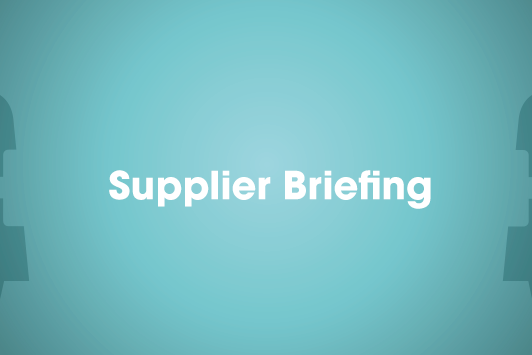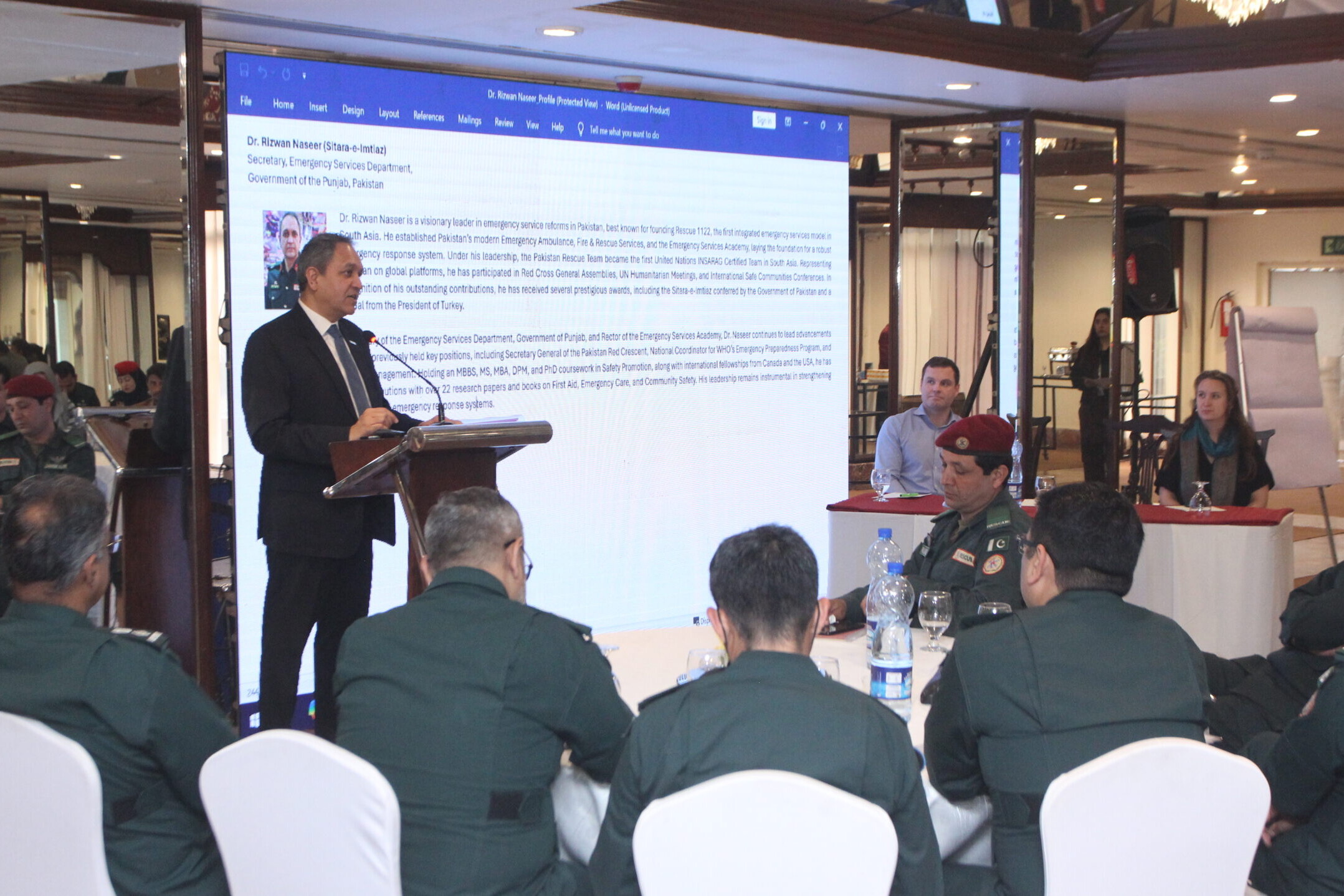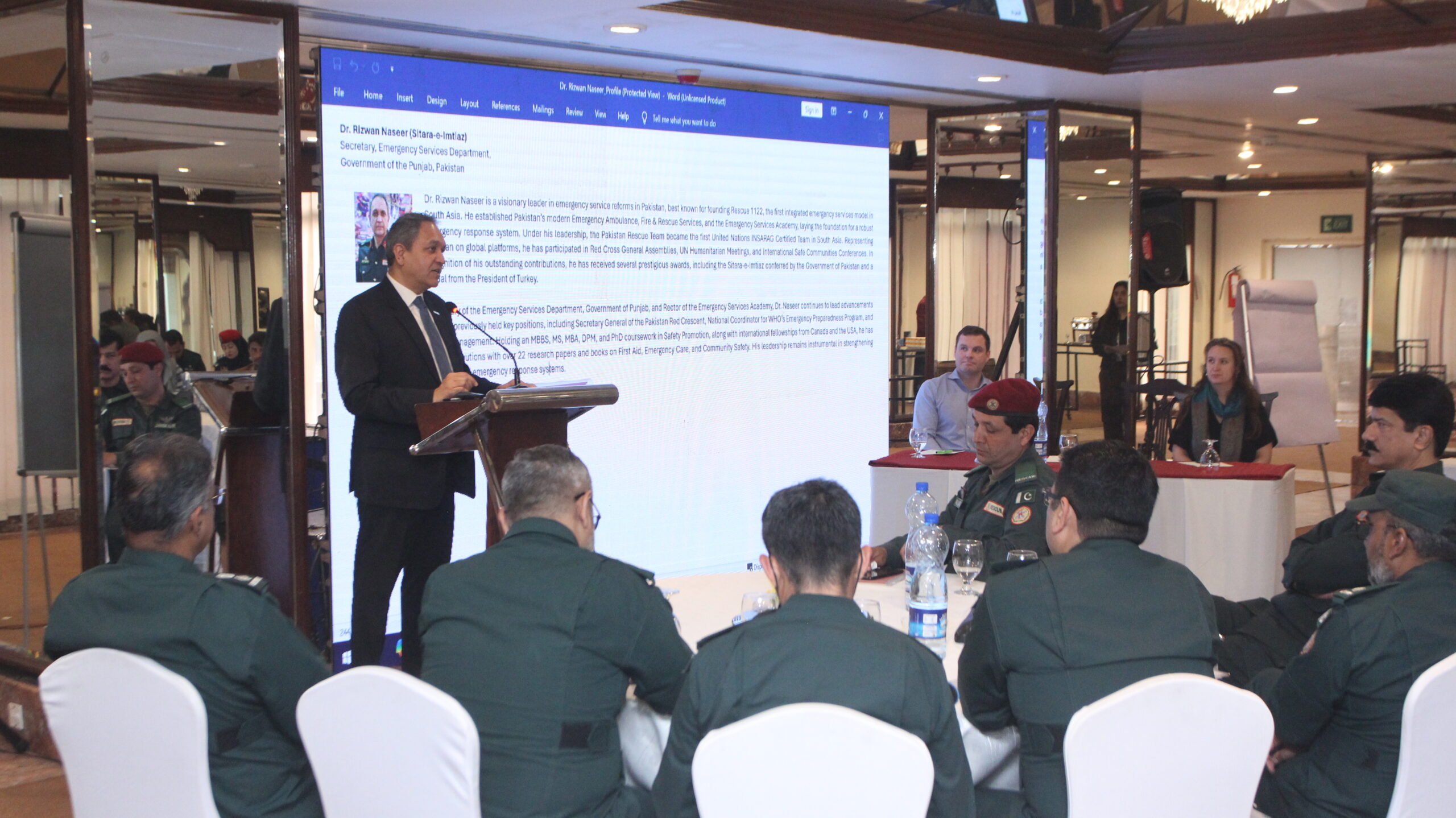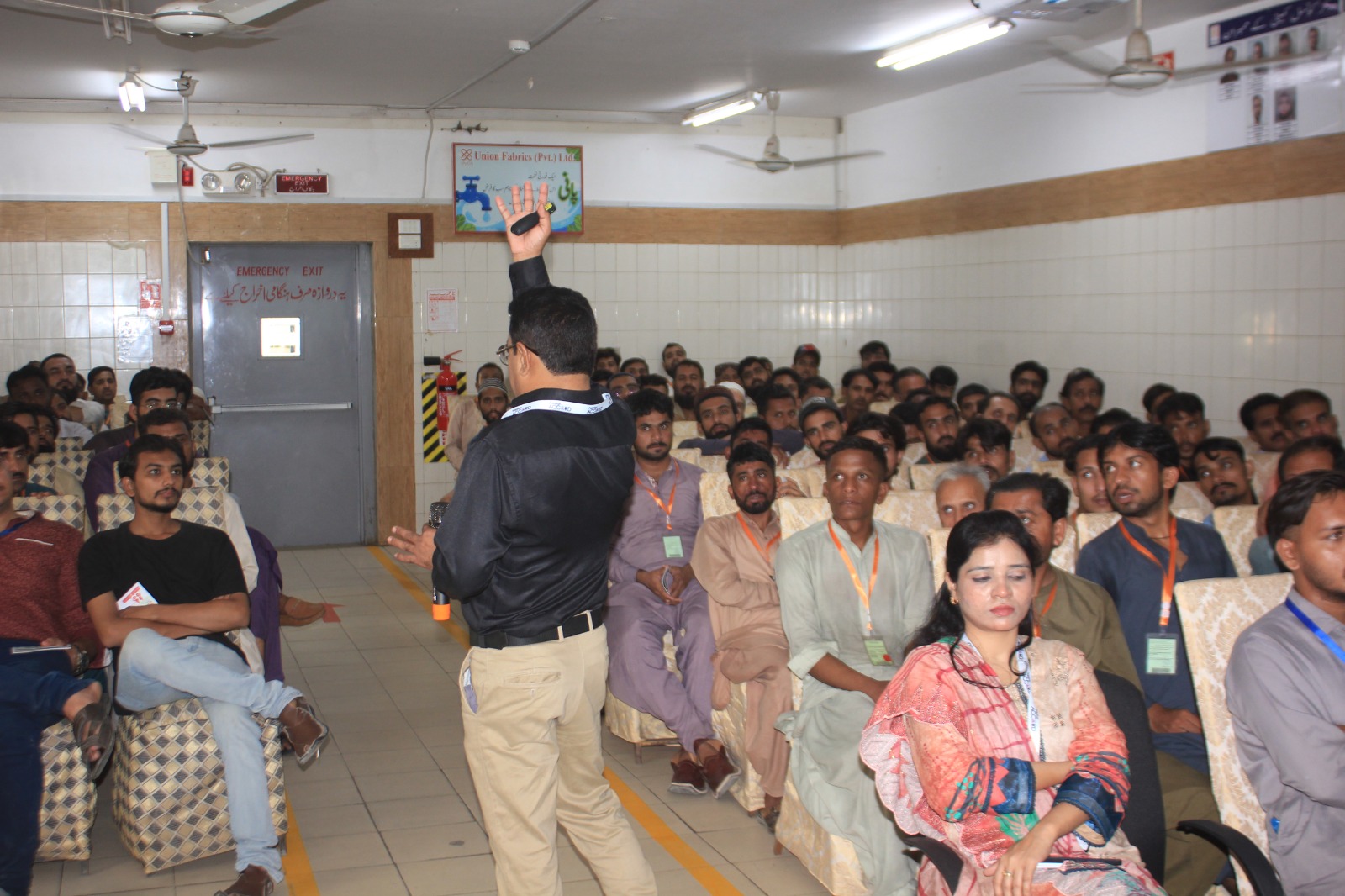Pakistan Accord: Supplier Briefing #6
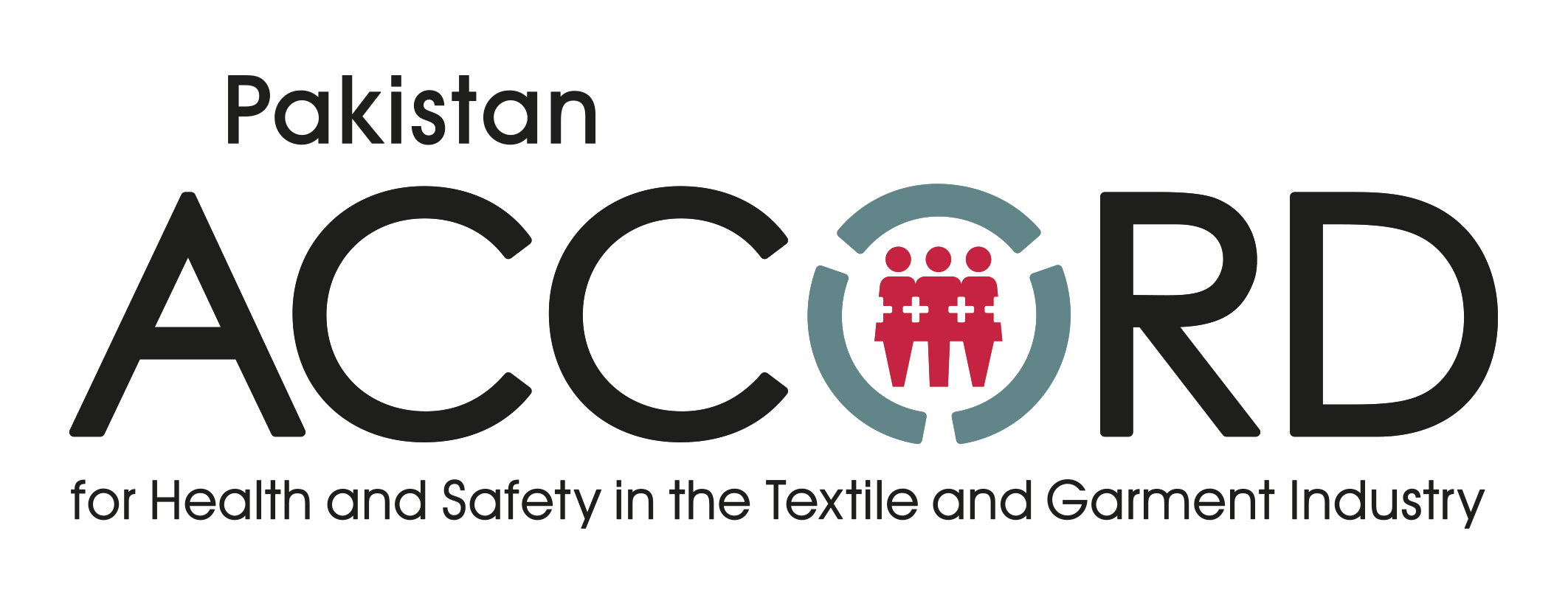
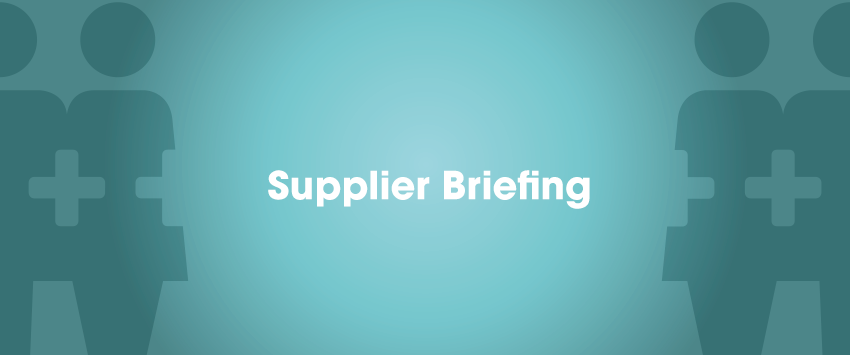
Supplier Briefing #6
These briefings are designed for all factories and suppliers listed by Pakistan Accord signatory brands. They include updates on key developments under the Pakistan Accord, along with information on upcoming events, guidance materials, and resources for suppliers.
We encourage all suppliers and factories covered by the Pakistan Accord to read these briefings and to share suggestions on what they would like to see in them by contacting us via pakistan.factories@internationalaccord.org.
This briefing includes updates on:
- Coverage: Signatory brands, factories and workers
- Program Rollout: Inspections and Remediation, Workplace Programs
- Key Events: Government capacity building sessions, technical workshops for service providers
- Implementation: Hiring update, vacancies
Number of Signatory Brands, Covered Factories and Workers
At the time of writing this briefing, 133 global brands sourcing textiles and garments from Pakistan have signed the Pakistan Accord and committed to working with their suppliers to ensure workplace health and safety. Since the last Briefing, new brands including Levi Strauss & Co., GearCo (Unrivaled Teamwear) and Lomotex GmbH & Co. KG have become signatories.
The Pakistan Accord signatory brands are headquartered in 18 countries across Europe, the USA, Australia, Hong Kong, Turkey and Japan, and include some of the world’s largest clothing brands and retailers. Collectively, these brands source approximately US$3.5 billion worth of goods from over 530 suppliers in Pakistan employing over 567,000 workers.
View the latest list of Pakistan Accord signatories.
View the list of factories participating in the Pakistan Accord programs.
Program Rollout
Inspections and Remediation
Over 200 factories across Karachi, Lahore, and Faisalabad have been inspected for fire, electrical, and structural safety. All inspections follow the Pakistan Accord Building Standard to identify risks and improve safety in Pakistan’s textile and garment industry. Inspections will include the identification of risks linked to hazardous materials at a later stage.
Start of Boiler Safety Inspections
The Pakistan Accord boiler safety team is now fully trained and has conducted seven visual inspections. All factories inspected for boiler safety receive a form to provide details on the quantity and types of boilers at their facilities, ensuring a comprehensive approach to these inspections.
In November 2024, the safety compliance consultancy TUV SUD conducted a week-long training program in Sri Lanka for the Pakistan Accord boiler safety team. As a follow-up, these engineers visited the RMG Sustainability Council (RSC) boiler safety team in Bangladesh for a knowledge exchange session and participated in factory inspections for hands-on training.

Boiler safety engineers from the Pakistan Accord team and the RMG Sustainability Council (RSC) participating in a training session in Sri Lanka.
Inspection Reports and CAPs
The International Accord Secretariat published the first set of Corrective Action Plans (CAPs) and initial inspection reports on fire, electrical, and structural safety for 30 factories under the Pakistan Accord on Friday, 21 February 2025.
These reports reflect the safety findings and progress at the inspected factories and are published in accordance with the transparency commitments under the Accord (Section IV, Article 29b of the International Accord, and Section IX, Article 23b of the Pakistan Accord).
The Accord is currently developing a factory search tool to showcase the progress at covered factories in Pakistan. In the meantime, the reports are temporarily available here.
Common Safety Findings and Remediation
To date, safety inspections have so far identified over 5,500 safety risks, including approximately 2400 findings on electrical safety, 2200 on fire safety, and 900 on structural safety. Below is an overview of the main findings under each safety inspection scope, along with remediation actions factories are taking to improve safety at their facilities.
Electrical Safety
Common findings
Pakistan Accord engineers identified electrical safety as the top risk in inspected factories, with over 2,400 risks. About 1,021 involve distribution boards and protection systems, commonly affected by hot spots from overloading, incorrect cable sizing, and poor installation—issues often missed due to a lack of thermographic testing. Many factories also have incomplete or missing electrical Single Line Diagrams (SLDs).
Remediation
Factories are training electrical staff, implementing thermographic testing for early fault detection, updating SLDs for better troubleshooting, and minimising combustible materials near electrical panels to reduce fire risks.
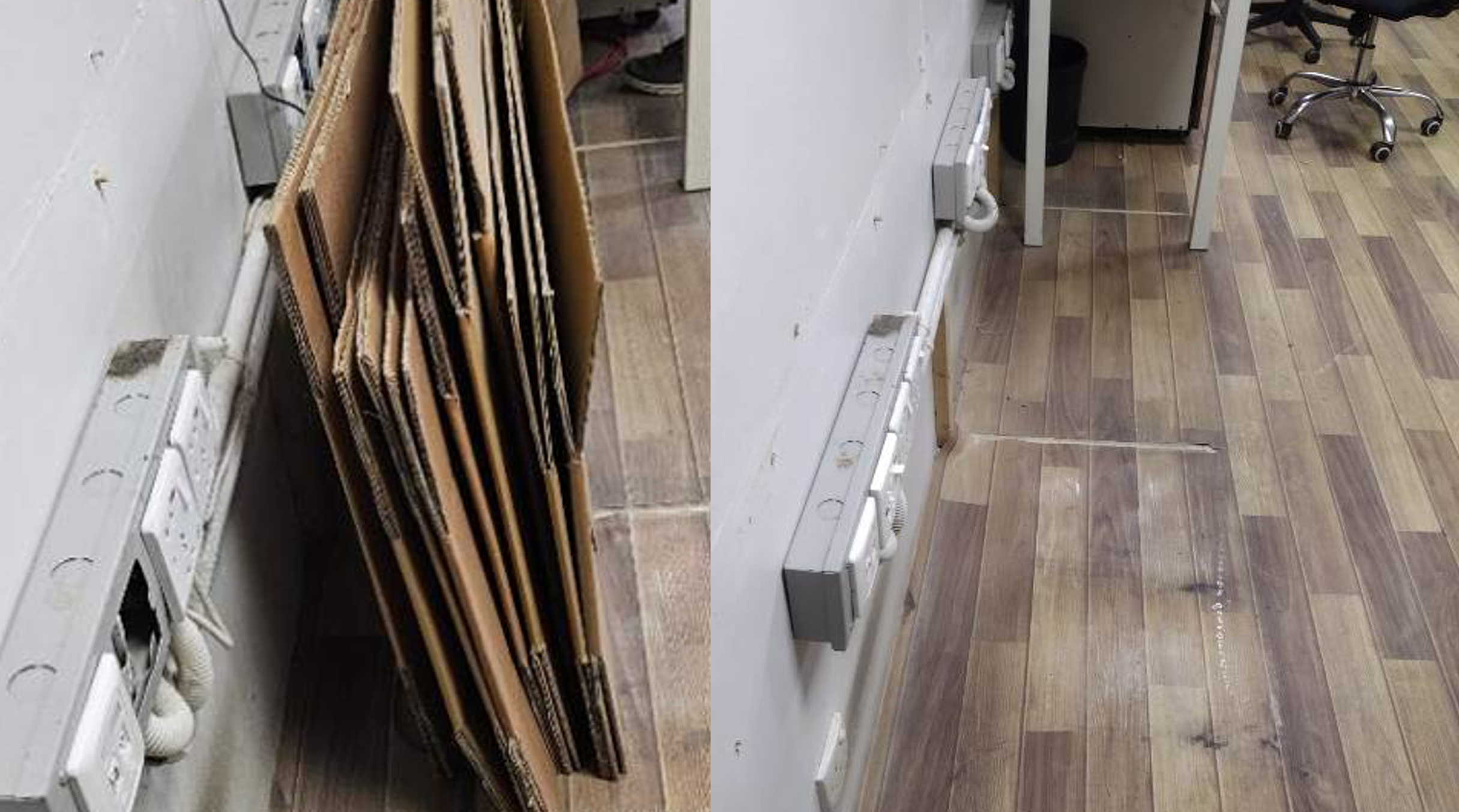
Left – Before: Combustible material near electrical panel; Right – After: Combustible material removed
Fire Safety
Common findings
Among 2,200 fire safety risks in inspected factories, 986 involve unsafe escape routes. Non-compliance includes locked doors or doors opening against escape routes, hindering evacuation. Many factories also lack handrails on exit routes, increasing risk during emergencies.
Remediation
According to the Pakistan Accord Building Standard, compliant escape doors should be free of locking devices, and swing open in the direction of an escape route. In addition, factories are installing handrails to ensure safe egress and help workers safely exit in case of fire safety accidents.
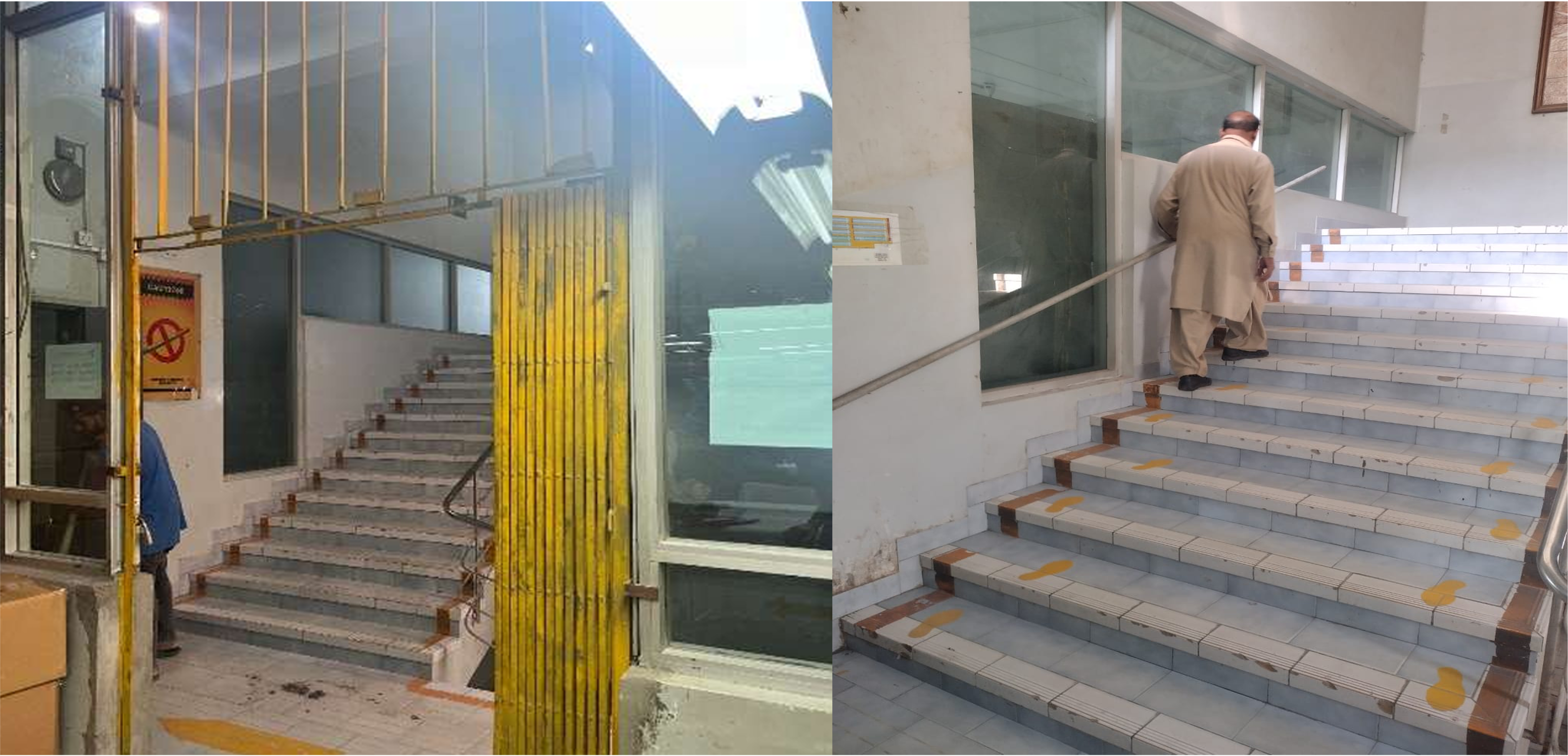
Left – Before: No handrails; Right – After: Handrails installed
Structural Safety
Common findings
Among 900 structural safety risks, overstressed columns are a major concern, with 188 reported cases. Excessive loads, such as water tanks and floor build-ups, often exceed design capacity, increasing the risk of collapse. Additionally, many factories have cracks in their buildings, further compromising workplace safety.
Remediation
The Pakistan Accord Building Standard and Accord engineers recommend reviewing designs, assessing loads, and reducing excessive stress on columns in high-risk areas to ensure safety. Factories are repairing building cracks to maintain structural strength and prevent them from worsening, ensuring long-term safety.
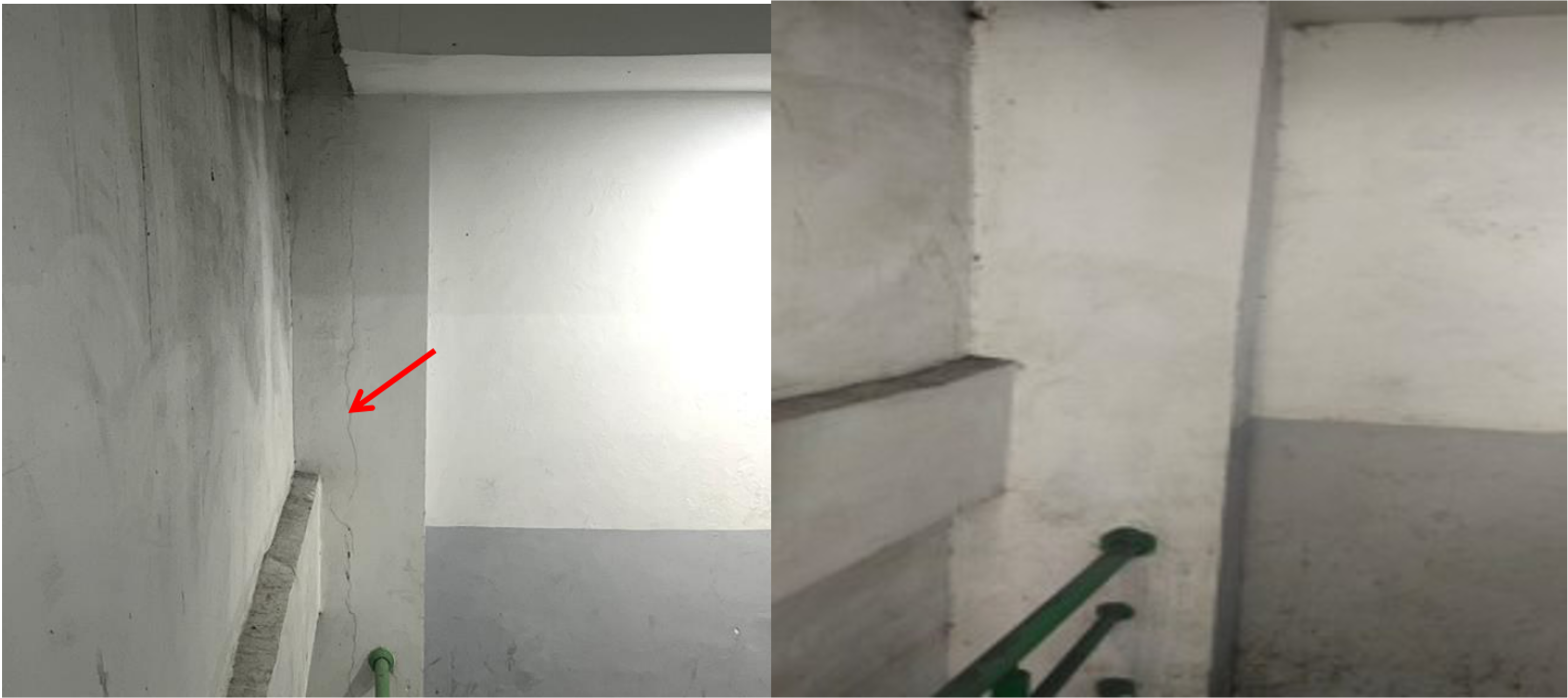
Left – Before: Cracks in walls; Right – After: Fixed walls
Workplace Programs
The Pakistan Accord has made significant progress in its Workplace Programs across factories.
- In November, the Pakistan Accord conducted its first All Employee Meeting at a home textile factory in Karachi.
- As of the end of February, initial meetings have been conducted at 129 factories, while All-Employee Meetings have been organised at 21 factories, totalling 73 sessions and reaching over 18,500 workers.
- The Safety Committee Training has been piloted at one factory, and the contact details to file complaints under the Pakistan Accord Complaints Mechanism have been distributed to 121 factories.
Looking ahead, the Workplace Programs are set to expand further, with additional initial and All-Employee Meetings scheduled from February through April. Concurrently, the key messages will be communicated online via animations.
Recruitment efforts in Karachi and Lahore are underway to strengthen the Workplace Program team, which currently comprises four trainers—two based in Karachi and two in Lahore—and a dedicated complaints team consisting of two specialists and one Occupational Safety and Health (OSH) manager.

The Workplace Programs are set to expand further, with additional initial and All-Employee Meetings scheduled in the coming months.
Events
Technical Workshops for Service Providers - December 2024
In December 2024, the Pakistan Accord Secretariat hosted two technical workshops for consultants in Lahore (December 12) and Karachi (December 16). Focused on the first 30 factories with technically approved CAPs that have commenced remediation, these sessions aimed to clarify the design documentation and certification requirements for fire, structural, and electrical safety.
The workshops featured insights from Country Director Zulfiqar Shah and Chief Safety Officer George Faller, and included in-depth presentations on Fire Alarm & Detection Systems, Fire Suppression Systems, and Structural Detailed Engineering Assessments. These sessions provided detailed explanations of design review processes, required documentation, and core testing methods, and concluded with interactive Q&A rounds. Participants expressed their appreciation for the technical support and interest in continuing these initiatives in the future.
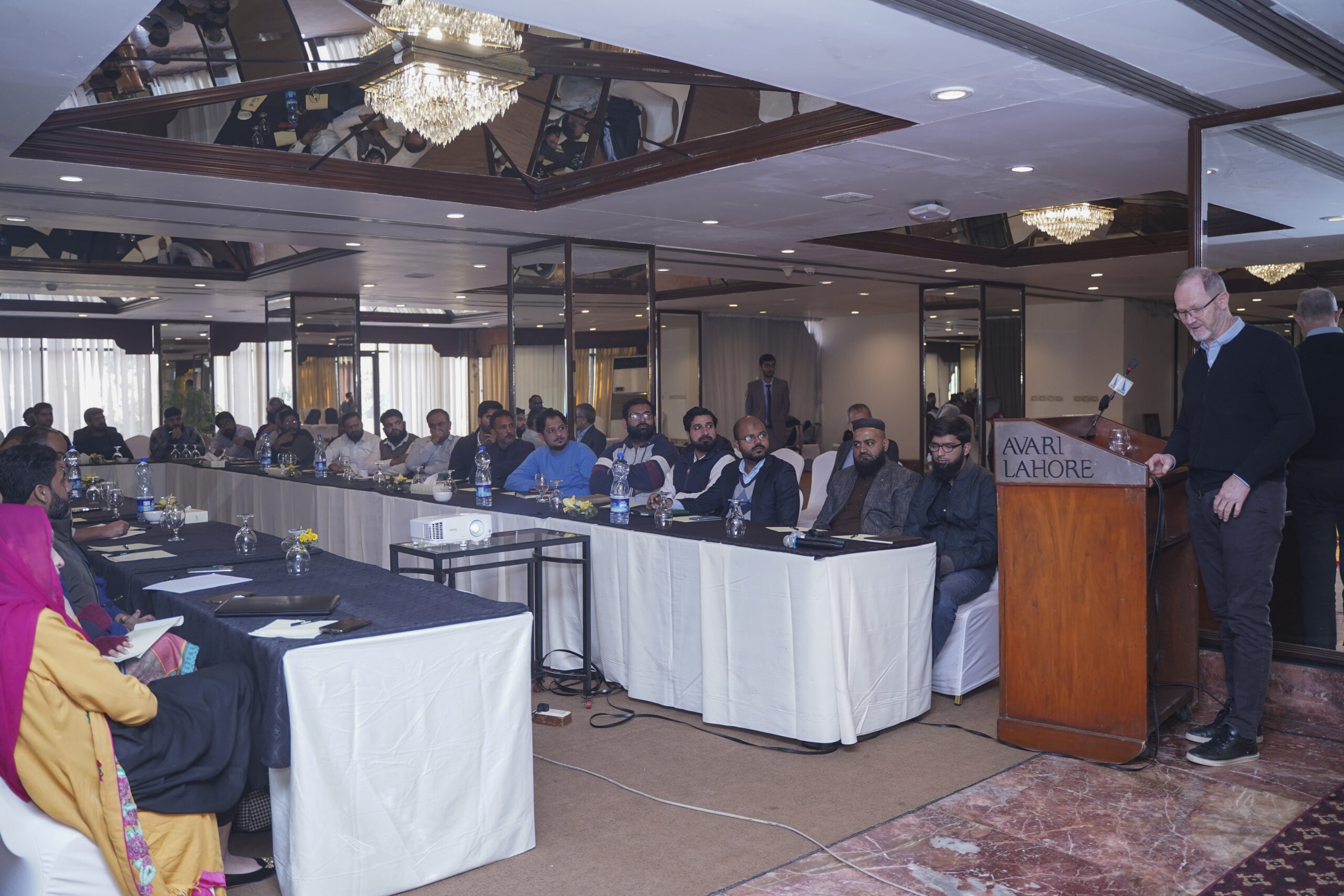
The Pakistan Accord Secretariat hosted two technical workshops for consultants in Lahore and Karachi.
Government Capacity Building Workshops - February 2025
The Pakistan Accord recently conducted capacity-building workshops for government officials in Sindh and Punjab. Held in Karachi from February 3–7, 2025, and in Lahore from February 10–14, 2025, the five-day events brought together over 70 participants from multiple government departments. Expert-led sessions by Arup covered key topics such as building, fire, and electrical safety, along with practical factory visits that provided hands-on insights into regulatory processes and international standards.
Officials including Dr. Abid Shaikh, Athar Ali Shah, Dr. Rizwan Naseer, and Syeda Kulsoom Hayee, inaugurated and closed the sessions, underscoring the initiative’s importance in fostering a stronger safety culture across Pakistan’s workplaces.
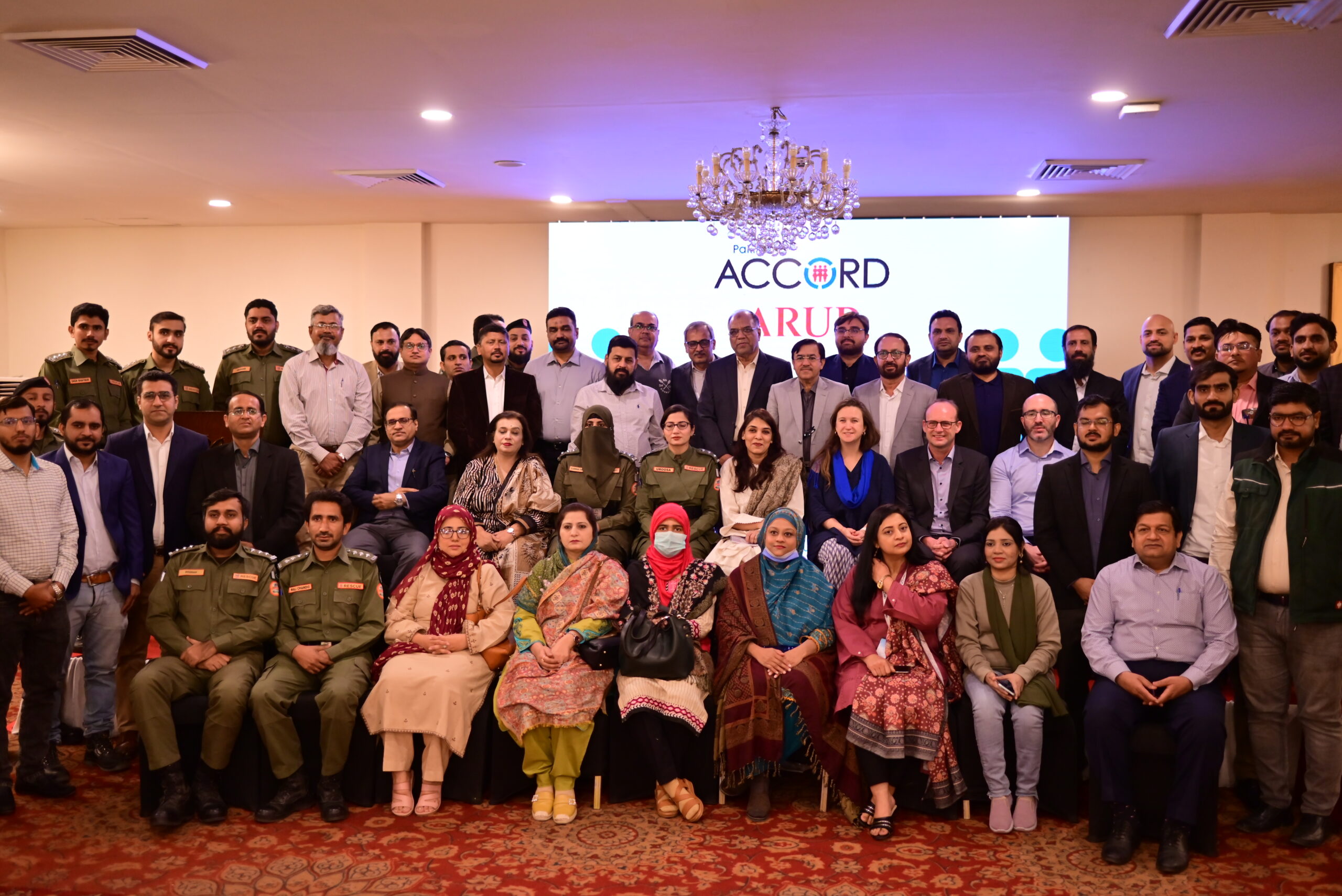
The capacity-building workshops for government officials covered key topics under building, fire, and electrical safety.
Implementation
The Pakistan Accord is actively building and training local teams in its Karachi and Lahore offices to ensure effective program implementation in close coordination with covered suppliers and brands. The organisation is also expanding both its Inspections & Remediation Department and Workplace Program Team. Furthermore, recruitment efforts are underway to hire fire, structural, and boiler safety experts, as well as training and complaints specialists, along with additional support staff.
See the latest vacancies under the Pakistan Accord.
Resources
Stay in Touch
Related updates
May 28, 2025
The International Accord’s All Signatory Meeting was dedicated to insights on the progress and operations of the Accord’s country program in Bangladesh and Pakistan, alongside exploring opportunities to expand the Accord’s scope and impact.
March 10, 2025
This briefing provides updates on the number of signatory brands and covered factories, the rollout of Workplace Programs, and recent events organised by the Pakistan Accord team.
February 19, 2025
The Pakistan Accord team recently organised a series of capacity building workshops for government officials in the Sindh and Punjab provinces.
May 28, 2025
The International Accord’s All Signatory Meeting was dedicated to insights on the progress and operations of the Accord’s country program in Bangladesh and Pakistan, alongside exploring opportunities to expand the Accord’s scope and impact.
February 19, 2025
The Pakistan Accord team recently organised a series of capacity building workshops for government officials in the Sindh and Punjab provinces.
November 28, 2024
On 26 and 27 November 2024 the Pakistan Accord conducted its inaugural safety training meeting in Pakistan. The meeting was attended by all employees of the factory.
Identification, Prevention and Mitigation of Safety Risks Underway in Pakistan
Supplier Briefings
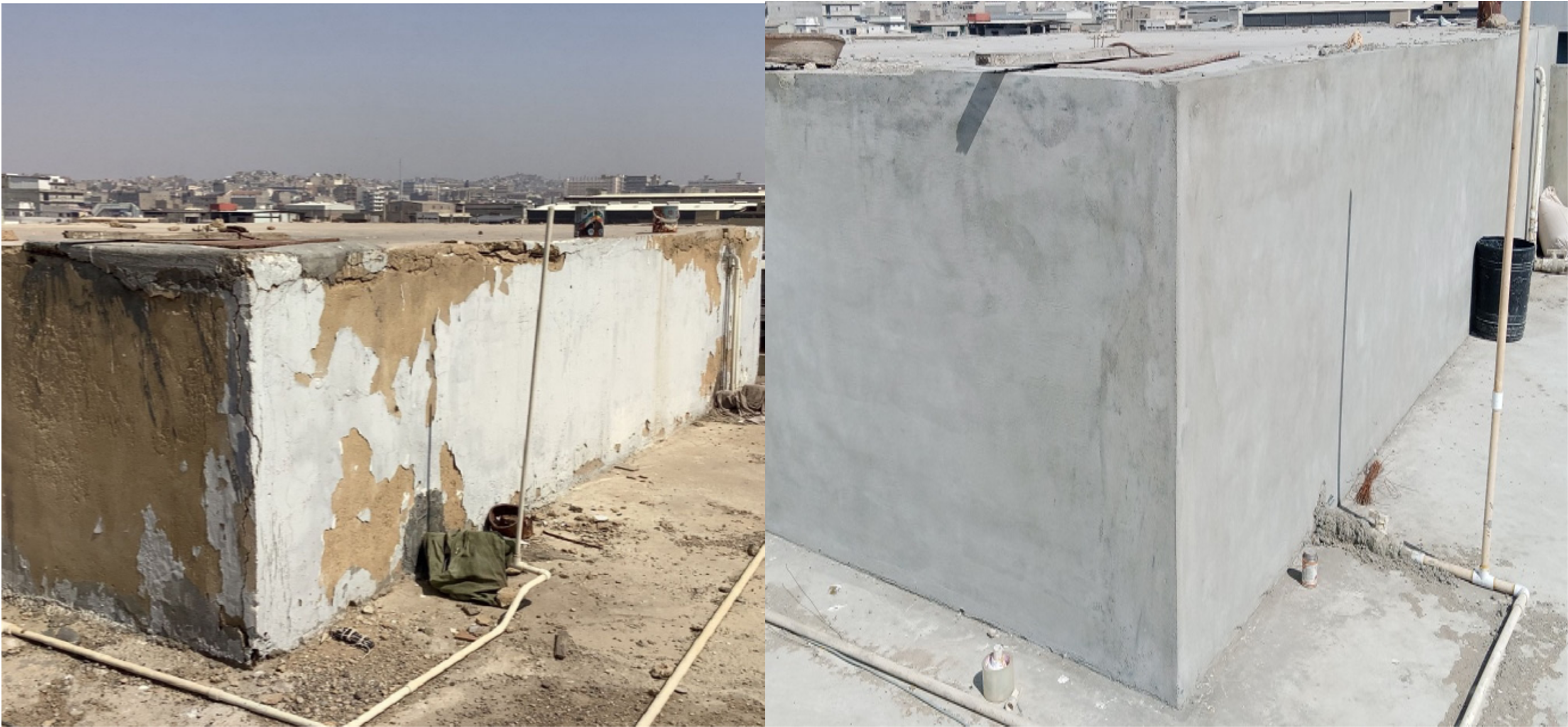
The Pakistan Accord on Health and Safety in the Textile and Garment Industry was established in 2023 with the first batch of initial inspections starting in October 2023. The program is now well underway with fire, electrical and structural safety inspections at 185 factories across Karachi, Lahore and Faisalabad in Pakistan. The Pakistan Accord Workplace Programs were rolled out in August 2024, and the team has now reached a milestone of 100 initial meetings at factories to launch the program.
The safety inspections have identified over 5,500 safety issues, including approximately 2,400 related to electrical safety, 2,200 to fire safety, and 900 to structural integrity.
In response, factories have begun addressing these findings and are collaborating closely with the Pakistan Accord’s engineering and remediation teams to implement safety improvements at their facilities.
Immediate Action for Critical Issues
In cases where Accord engineers identified urgent safety concerns, factories have taken immediate remedial actions. These actions include:
- Load Reduction: In areas with overstressed columns, factories have reduced the load on structures to ensure the structural integrity of the building.
- Electrical Panel Shutdown: Unsafe electrical panels have been shut down to mitigate risks of short circuits caused by electrical hotspots and tangled wires.
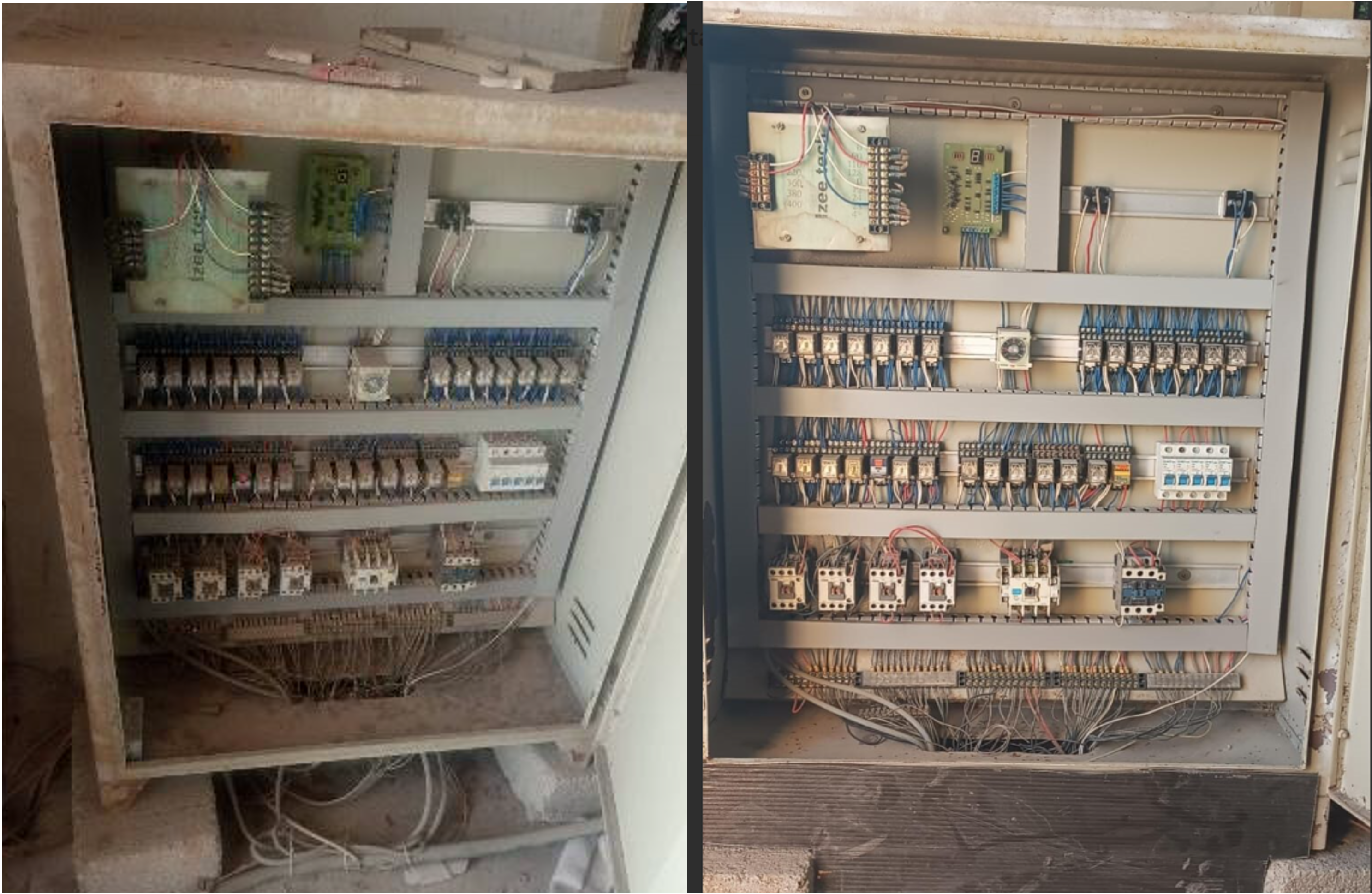
Left – Before: Tangled wires, dust in electrical panel; Right – After: Organised wires and clean electrical panel to mitigate short circuit risks
Electrical Safety Remediation
Electrical safety has been identified as the most significant risk at the inspected factories, with over 2,400 findings. Most factory fires are caused by electrical hazards, so remediating these issues is a crucial preventative measure. To address these issues, factories are taking the following steps:
- Thermographic Testing: Independent thermographic surveys are being scheduled to detect overheating components, loose connections, and other faults.
- Repairs and Maintenance: Electrical panels are being assessed to identify sources of abnormal temperatures. Actions include tightening connections, redistributing electrical loads, and replacing faulty components and cables. Additionally, factories are actively minimising combustible materials near electrical panels, a crucial measure for reducing the risk of ignition.

Left – Before: Combustible material near electrical panel; Right – After: Combustible material removed
Fire Safety Remediation Measures
Among the 2,200 fire safety findings, 986 issues are related to means of escape. In response to these findings, factories are:
- Removing Locking Features: Non-compliant locking mechanisms are being removed, and doors are being fitted with easy-to-open mechanisms that comply with NFPA 101 and the Pakistan Accord Building Standard.
- Correcting Door Swing Direction: Exit doors are being replaced or modified to ensure they swing in the direction of escape routes, facilitating smoother evacuations during emergencies.
- Installing Handrails: Factories are installing handrails to ensure safe egress and help people safely exit in case of fire safety accidents.

Left – Before: No handrails; Right – After: Handrails installed
Structural Safety Remediation Measures
Among the 900 structural safety findings, overstressed columns have been a common issue. To mitigate the risks, factories are:
- Reviewing Designs and Loads: Factories are engaging engineering consultants to conduct reviews of design, load distribution, and stress levels on overstressed columns.
- Reducing Loads: Excessive loads are being removed from columns to ensure compliance with the Pakistan Accord Building Standard.
- Fixing Cracks: Factories are fixing building cracks because these repairs help maintain the building’s strength and ensure a safe environment. Addressing cracks early prevents them from developing into larger issues, keeping the structure sound over time.
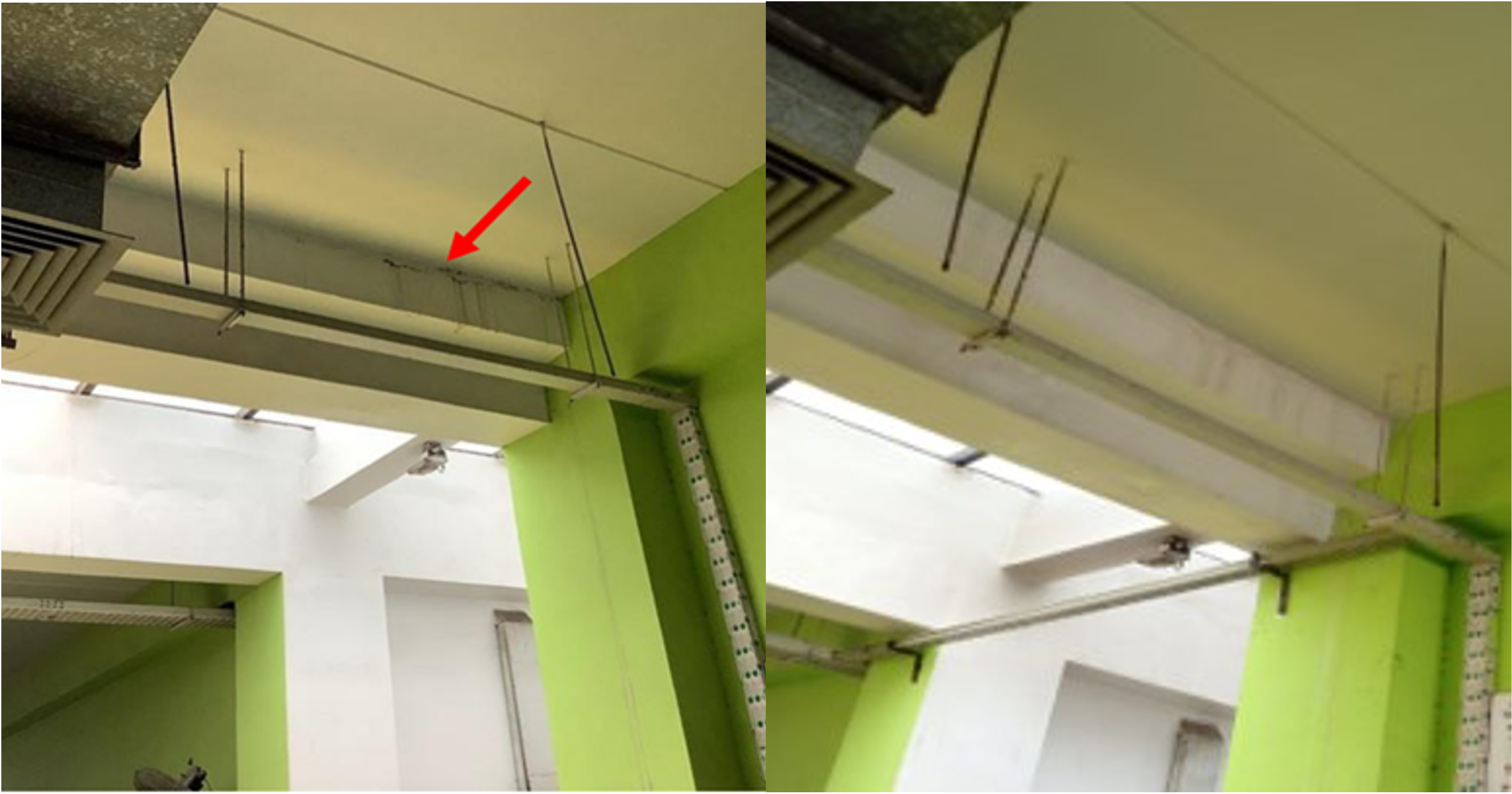
Left – Before: Cracks in walls; Right – After: Fixed walls
By promptly addressing these safety concerns, factories under the Pakistan Accord are taking important and tangible measures to prevent and mitigate safety hazards within Pakistan’s textile and garment industry. The Pakistan Accord is encouraged by the level of cooperation by suppliers and their commitment to safe workplaces.
The International Accord Secretariat published the first set of Corrective Action Plans (CAPs) and initial inspection reports on fire, electrical, and structural safety for 30 factories under the Pakistan Accord on Friday, 21 February 2025. These reports reflect the safety findings and progress at the inspected factories and are published in accordance with the transparency commitments under the Accord (Section IV, Article 29b of the International Accord, and Section IX, Article 23b of the Pakistan Accord).
The Accord is currently developing a factory search tool to showcase the progress at covered factories in Pakistan. In the meantime, the reports are temporarily available here.
Related updates
May 28, 2025
The International Accord’s All Signatory Meeting was dedicated to insights on the progress and operations of the Accord’s country program in Bangladesh and Pakistan, alongside exploring opportunities to expand the Accord’s scope and impact.
March 10, 2025
This briefing provides updates on the number of signatory brands and covered factories, the rollout of Workplace Programs, and recent events organised by the Pakistan Accord team.
February 19, 2025
The Pakistan Accord team recently organised a series of capacity building workshops for government officials in the Sindh and Punjab provinces.
May 28, 2025
The International Accord’s All Signatory Meeting was dedicated to insights on the progress and operations of the Accord’s country program in Bangladesh and Pakistan, alongside exploring opportunities to expand the Accord’s scope and impact.
February 19, 2025
The Pakistan Accord team recently organised a series of capacity building workshops for government officials in the Sindh and Punjab provinces.
November 28, 2024
On 26 and 27 November 2024 the Pakistan Accord conducted its inaugural safety training meeting in Pakistan. The meeting was attended by all employees of the factory.
Pakistan Accord: Supplier Briefing #5


Supplier Briefing #5
These briefings are designed for all factories and suppliers listed by Pakistan Accord signatory brands. They include updates on key developments under the Pakistan Accord, along with information on upcoming events, guidance materials, and resources for suppliers.
We encourage all suppliers and factories covered by the Pakistan Accord to read these briefings and to share suggestions on what they would like to see in them by contacting us via pakistan.factories@internationalaccord.org.
This briefing includes updates on:
- Coverage: Number of Signatory Brands, Covered Factories and Workers
- Program Rollout: Inspections and Remediation, Workplace Program
- Events: Needs Assessment Workshop
- Implementation: Hiring Update & Vacancies
Number of Signatory Brands, Covered Factories and Workers
At the time of writing this briefing, 128 global brands sourcing textiles and garments from Pakistan have signed the Pakistan Accord and committed to working with their suppliers to ensure workplace health and safety. The latest brands to sign the Pakistan Accord include Fatface Ltd., Outerstuff LLC, Image International Limited, Pel Industries, among others.
The Pakistan Accord signatory brands are headquartered in 18 countries across Europe, the USA, Australia, Hong Kong, Turkey and Japan, and include some of the world’s largest clothing brands and retailers. Collectively, these brands source approximately US$3 billion worth of goods from over 500 suppliers in Pakistan employing over 574,000 workers.
View the latest list of Pakistan Accord signatories.
View the list of factories participating in the Pakistan Accord programs.
Program Rollout
Factory Inspections and Remediation
Inspections
85 garment and textile factories in Karachi, Lahore, and Faisalabad covered under the Pakistan Accord have been inspected on fire, electrical, and structural safety. By September, the Accord expects to conduct initial inspections at 100 factories. All factories are being inspected against the Pakistan Accord Building Standard (Standard) that establishes minimum life safety criteria to reduce danger to life from fire, structural, electrical, and boiler hazards as well as safety risks relating to the storage, use, and handling of hazardous substances.
Remediation
CAP Template Launch Webinar – June 2024:
The Pakistan Accord Secretariat organised a briefing session on 11 June for the first 50 inspected factories. This session introduced the purpose, steps, and roles of brands and suppliers in the technical finalisation of the factory Corrective Action Plans (CAPs). With support from the Pakistan Accord Secretariat, inspected factories develop a CAP and agree on timelines to address the remediation of safety findings in a timely and effective manner.
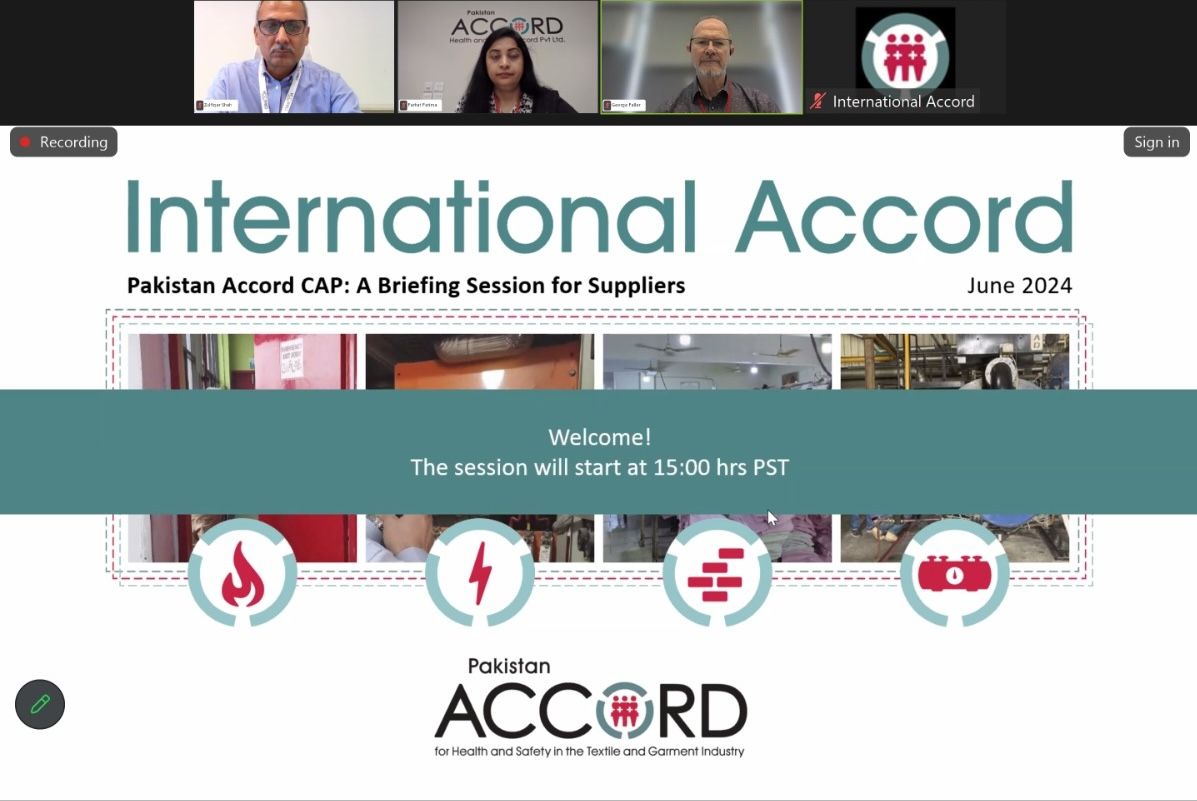
The webinar included technical insights on the CAP templates by George Faller, Chief Safety Officer, and updates on the rollout of the inspections program by Zulfiqar Shah, Country Manager of the Pakistan Accord. The session was moderated by Farhat Fatima, the Remediation Department Manager for the Pakistan Accord.
We thank the over 60 representatives of garment factories from Karachi, Lahore, and Faisalabad for participating in the webinar. The Pakistan Accord Secretariat intends to organise more such webinars for suppliers to explain the CAP development process.
Finance Plan Briefing for Suppliers – August 2024:
The Pakistan Accord Secretariat conducted a briefing session to a first group of inspected factories, offering insights into the Accord’s financing remediation policies. During the session, participants were introduced to the Finance Plan Guidance developed by the Secretariat to support factories in the financial planning of their remediation works. This Guidance offers tools, including Remediation and Finance Schedule Templates, designed to support factories in aligning remediation costs with the timelines in their CAPs.
The Pakistan Accord Secretariat will gather feedback on the guidance document and finance planning tools from this first group of factories, addressing any challenges or gaps, before it is rolled out to all covered factories in the coming months.
Workplace Program
Following stakeholder consultations on the design and curriculum over the past few months, the Pakistan Accord Secretariat hosted an informational briefing session on the rollout of its Workplace Program on August 19, 2024, in Karachi. The Workplace Program, which includes Safety Training and a Complaints Mechanism at covered factories, is a key component of the Pakistan Accord. It aims to build the capacity of joint labour-management Safety Committees to maintain safe workplaces, raise workers’ awareness of safety and health, ensure compliance with OSH-related requirements, and provide workers with access to remedy.

The event featured a panel discussion and a detailed briefing, providing participants with an opportunity to ask questions and provide feedback. Over 70 participants representing 30 covered factories attended the orientation session. The International Labour Organisation (ILO) and Deutsche Gesellschaft für Internationale Zusammenarbeit (GIZ) also attended as special invitees.
The Pakistan Accord Secretariat is planning to organise similar informational sessions with additional factories as the program is rolled out in Lahore and Karachi.
Events
Needs Assessment Workshops – August 2024
The Pakistan Accord Secretariat and ARUP, an international engineering firm, organised two needs assessment workshops during the week of 5 August 2024 in Karachi and Lahore. The goal of the workshops is to support local government capabilities in implementing and enforcing health and safety in Pakistan’s textile and garment industry by developing a targeted training program for the relevant Sindh and Punjab government agencies.
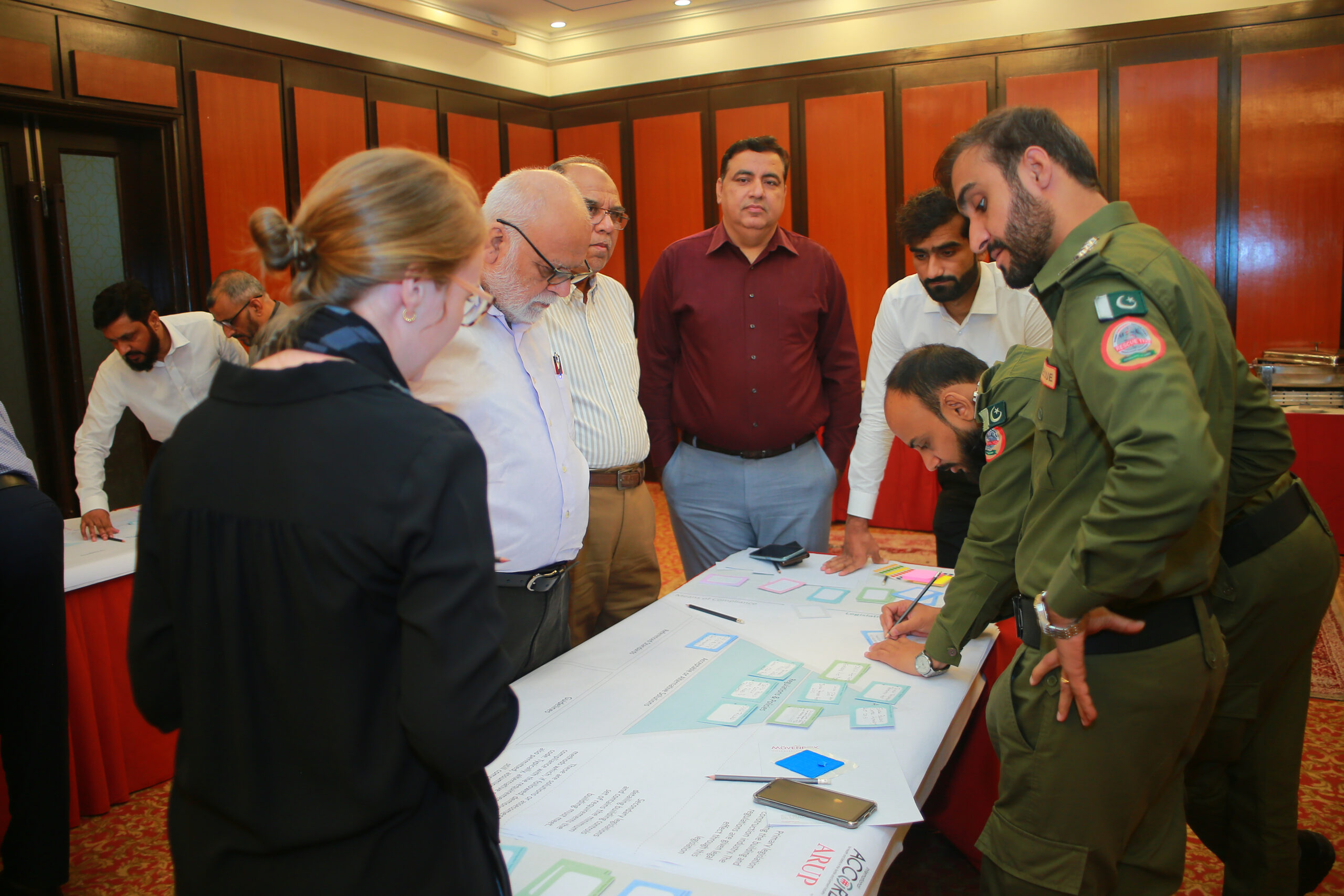
These interactive sessions brought together engineers and key government stakeholders, including Pakistan’s emergency services 1122, the Karachi Municipal Corporation, local building control authorities, and the Departments of Labour and Human Resources, among others. The workshops served as an engaging platform for exchanging information and fostering collaboration among various actors and agencies. Participants critically examined the regulatory framework of building safety, discussed certification and monitoring processes, and identified opportunities for synergy.
Implementation
The Pakistan Accord is in the process of building and training local teams in Karachi and Lahore to ensure the effective implementation of its programs in coordination with covered suppliers and brands. The team has recently hired a new batch of fire, structural and electrical engineers to join the Inspections & Remediation Department as well as training and complaints specialists to join the Workplace Programs Department. Further recruitment of boiler safety experts, training and complaints specialists, and additional support staff is currently in progress. The latest vacancies under the Pakistan Accord are available on the Accord website.
Resources
Stay in Touch
Related updates
May 28, 2025
The International Accord’s All Signatory Meeting was dedicated to insights on the progress and operations of the Accord’s country program in Bangladesh and Pakistan, alongside exploring opportunities to expand the Accord’s scope and impact.
March 10, 2025
This briefing provides updates on the number of signatory brands and covered factories, the rollout of Workplace Programs, and recent events organised by the Pakistan Accord team.
February 19, 2025
The Pakistan Accord team recently organised a series of capacity building workshops for government officials in the Sindh and Punjab provinces.
May 28, 2025
The International Accord’s All Signatory Meeting was dedicated to insights on the progress and operations of the Accord’s country program in Bangladesh and Pakistan, alongside exploring opportunities to expand the Accord’s scope and impact.
February 19, 2025
The Pakistan Accord team recently organised a series of capacity building workshops for government officials in the Sindh and Punjab provinces.
November 28, 2024
On 26 and 27 November 2024 the Pakistan Accord conducted its inaugural safety training meeting in Pakistan. The meeting was attended by all employees of the factory.
Pakistan Accord: Supplier Briefing #4


Supplier Briefing #4
These Supplier Briefings are designed for all factories/suppliers listed by Pakistan Accord signatory brands. They include updates on key developments under the Pakistan Accord, along with information on upcoming events, guidance materials, and resources for suppliers.
We encourage all suppliers/factories covered by the Pakistan Accord to read these briefings regularly and to share their recommendations, ideas, and suggestions by contacting us via pakistan.factories@internationalaccord.org.
This briefing includes updates on:
- Number of Signatory Brands, Covered Factories and Workers
- Program Rollout: Factory Inspections and Remediation
- Events: Brand Supplier Meetings in Amsterdam, Lahore and Karachi
- Implementation: Capacity Building for Engineers, New Karachi Office
Number of Signatory Brands, Covered Factories and Workers
At the time of writing this briefing, 122 global brands sourcing textiles and garments from Pakistan have signed the Pakistan Accord and committed to working with their suppliers to ensure workplace health and safety. The latest brands to sign the Pakistan Accord include Asda Stores, Concepts Sport, Royce Apparel Inc., Fanatics Apparel, Imagine One, Little King, Lorenz Bach, among others.
The Pakistan Accord signatory brands are headquartered in 18 countries across Europe, Turkey, the USA, Australia, Hong Kong, and Japan, and include some of the world’s largest clothing brands and retailers. Collectively, these brands source approximately US$3 billion worth of goods from over 500 suppliers in Pakistan that employ over 574,000 workers.
Program Rollout
Factory Inspections and Remediation
46 garment and textile factories in Karachi, Lahore, and Faisalabad covered under the Pakistan Accord have undergone initial inspections for fire, electrical, and structural safety. The number of initial factory safety inspections will reach the 50 mark in the coming days. A factory becomes part of the inspections program in Pakistan when a brand signs the Pakistan Accord and lists the factory as a supplying facility.
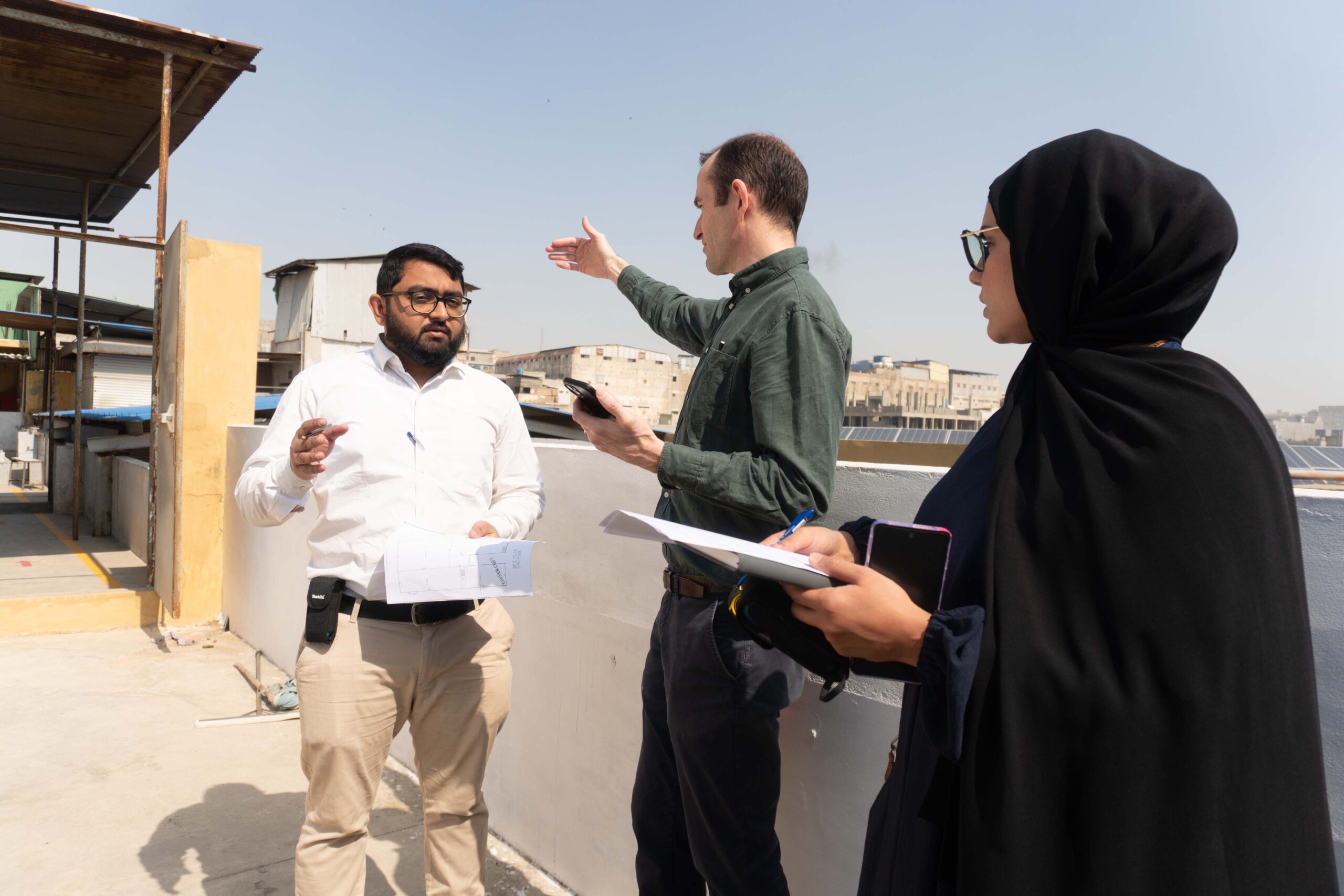
These factories are being inspected against the Pakistan Accord Building Standard (Standard) that establishes minimum life-safety criteria to reduce danger to life from fire, structural, electrical, and boiler hazards as well as safety risks relating to the storage, use, and handling of hazardous substances.
Safety Training and Complaints Mechanism
Stakeholder consultations on the design and curriculum for the Safety Training and Complaints Mechanism are currently underway and will take further shape in the coming months.
Events
Brand-Supplier Meetings in Amsterdam, Lahore and Karachi
Amsterdam
The International Accord Secretariat organised a brand-supplier event as part of its All Signatory Meeting on 26 April 2024, in Amsterdam, the Netherlands. Over 130 attendees participated in this event, representing a diverse range of stakeholders, including the Accord’s trade union, NGO, and brand signatories , the Pakistani manufacturing industry, the Pakistan Embassy of the Netherlands, and organisations such as the OECD and GIZ.
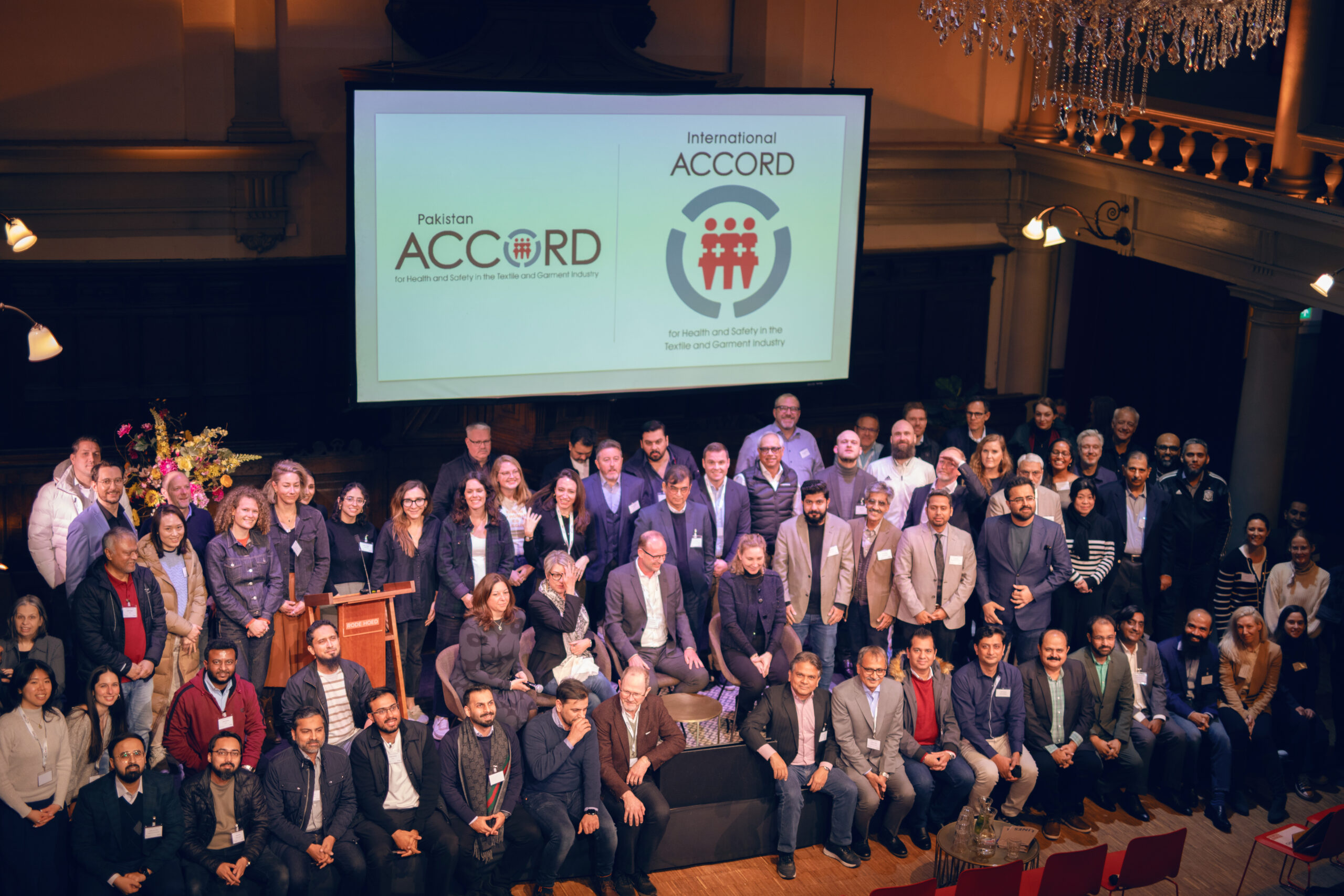
Manufacturers who participated in the first round of initial inspections held under the Pakistan Accord in October took the podium to share their experiences.
“At Lucky Textile Mills Limited, compliance is a reflection of our core values, not just a response to brand recognition or customer demand. The Pakistan Accord is a valuable framework to promote a safe and secure working environment for our workforce and ensure long-term sustainability. We emphasise the importance of Accord inspections in creating a secure and sustainable workplace for our employees, which also supports the future stability of our business. Thanks to the support of Accord brands and engineers, our experience during the first safety inspections at our factories was smooth and positive. We recommend that all relevant parties support the Pakistan Accord and leverage its expertise for the benefit of the Pakistani industry,” said Yasir Yaqoob, Chief Operating Officer of Lucky Textile Mills Limited.
Suppliers were invited to share their reflections, voice their concerns, and ask questions on how the Accord and its signatories can meaningfully engage with the Pakistani industry moving forward. Key takeaways included prioritising transparency and communication, facilitating financial planning and technical capacity-building, and addressing challenges for medium and small-sized manufacturers to meet Accord requirements.
Rehan Ahmendani (Executive Director, Synergies Worldwide) shared:
“The arrival of the Accord in Pakistan is not a challenge but an opportunity. It’s logical to understand that a safer workforce means more brands and, consequently, more business. The Accord is skillful and focuses on fostering strong business relations between brands and suppliers. Moving forward, I recommend that brands remain committed to the program and embrace new ideas to ensure worker safety, with a special focus on digitisation.”
During the meeting, at least three major brands and retailers highlighted that the Accord provides them with the necessary assurances and prospect of increasing their sourcing from Pakistan. Michelle Tarry (Vice President, Responsible Sourcing & Sustainability, AEO Inc.), shared:
“While our production in Pakistan has been limited thus far; our recent visits have left us impressed with the industry’s investments in safety infrastructure, sustainability, and innovation. In the coming years, we see significant growth potential in Pakistan and remain committed to the well-being of those making our products. The Pakistan Accord’s inspection program, training initiatives, and complaints mechanism will be instrumental in this journey.”
The Accord thanks all representatives from the Pakistani industry and looks forward to continuing an open and constructive dialogue to ensure the successful implementation of the Pakistan Accord for all concerned stakeholders.
Lahore and Karachi
Four Pakistan Accord signatory brands, Adidas, Boohoo, GAP and Primark, together with the International Accord and Pakistan Accord Secretariats organised a series of five brand-supplier meetings in Lahore and Karachi between 5-7 March 2024.
These meetings provided information about the Accord and its key programs, and aimed to enhance engagement between signatory brands and their suppliers covered under the Pakistan Accord.
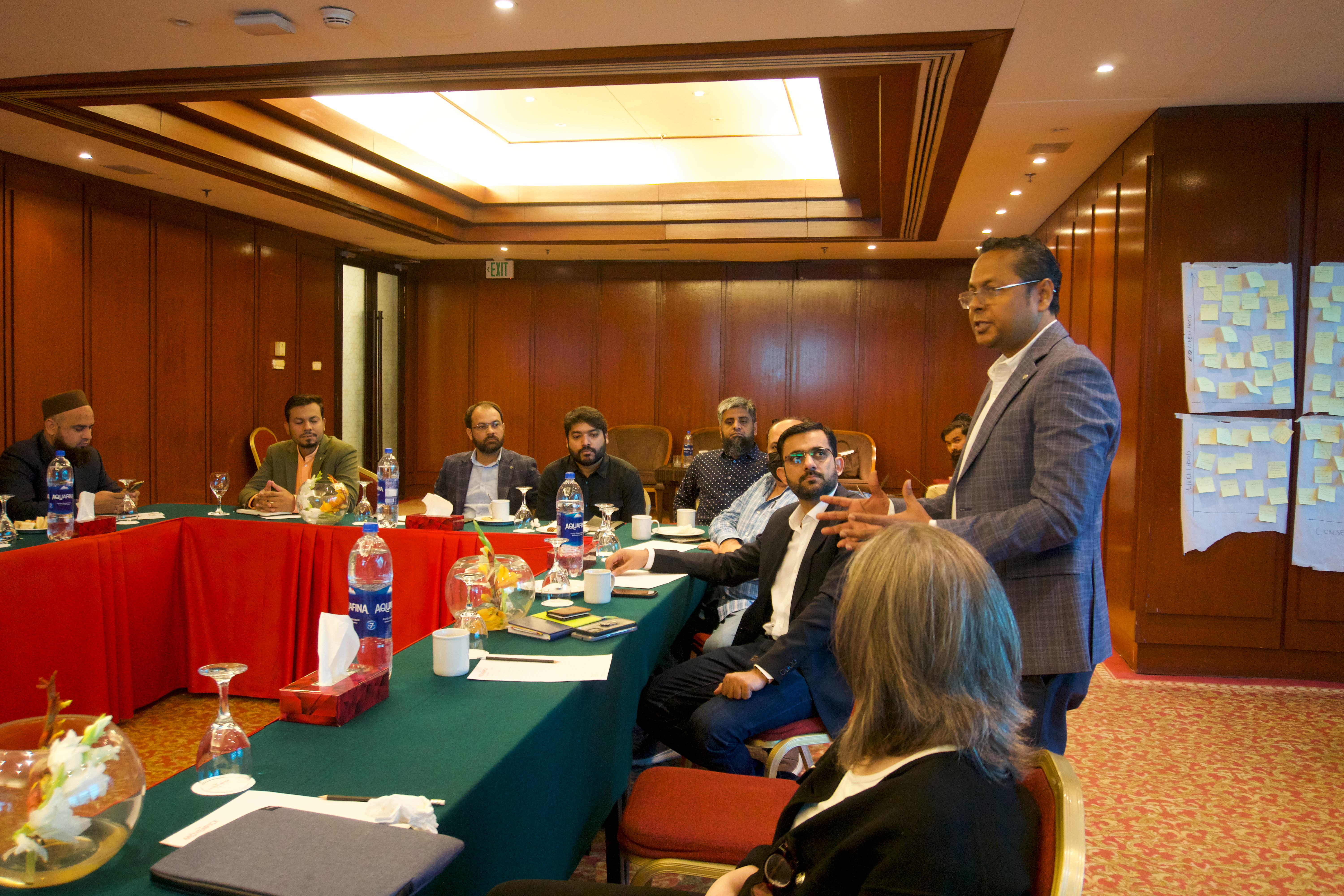
Speaking about their participation in these meetings, Sam Leach (Ethical Compliance Manager, Boohoo Group) said:
“The Boohoo Group sees the Accord framework as a great opportunity for our factories, not only to improve their building, electrical, fire, and boiler safety standards but also to enhance worker safety standards as a whole. We have seen the great work done in Bangladesh over the last 10+ years and we look forward to continuing to collaborate with The Accord and other international retailers to improve factory standards. We are encouraged to see that all our suppliers recognise the importance of the Pakistan Accord and are fully on board with the program.”
Implementation
Capacity Building for Pakistan Accord Engineers
Fourteen newly hired engineers, comprising five fire engineers, five electrical engineers, four structural engineers, are undergoing training aimed at providing them with the technical knowledge and practical skills necessary to conduct factory inspections against the reports.
In this inaugural batch, engineers are undergoing training facilitated by international engineering consultants, alongside George Faller (Chief Safety Officer, Pakistan Accord) and Colm Quinn (Head of Operations, International Accord). The training program started in March 2024 in Karachi, Faisalabad and Lahore, and spans 9 weeks (with a two-week break over Eid). A second round of training will start for new recruits on 1 July 2024.
Read more about the capacity building program here.
New Pakistan Accord Office in Karachi
The Health and Safety Accord (Pvt.) has opened a new office in Karachi, marking an exciting step for the implementation of the Pakistan Accord. The new office, located at Dolmen Corporate Tower in Clifton, will be the base for on-the-ground implementation of the Pakistan Accord’s safety inspections, worker training, and complaints mechanism programs.
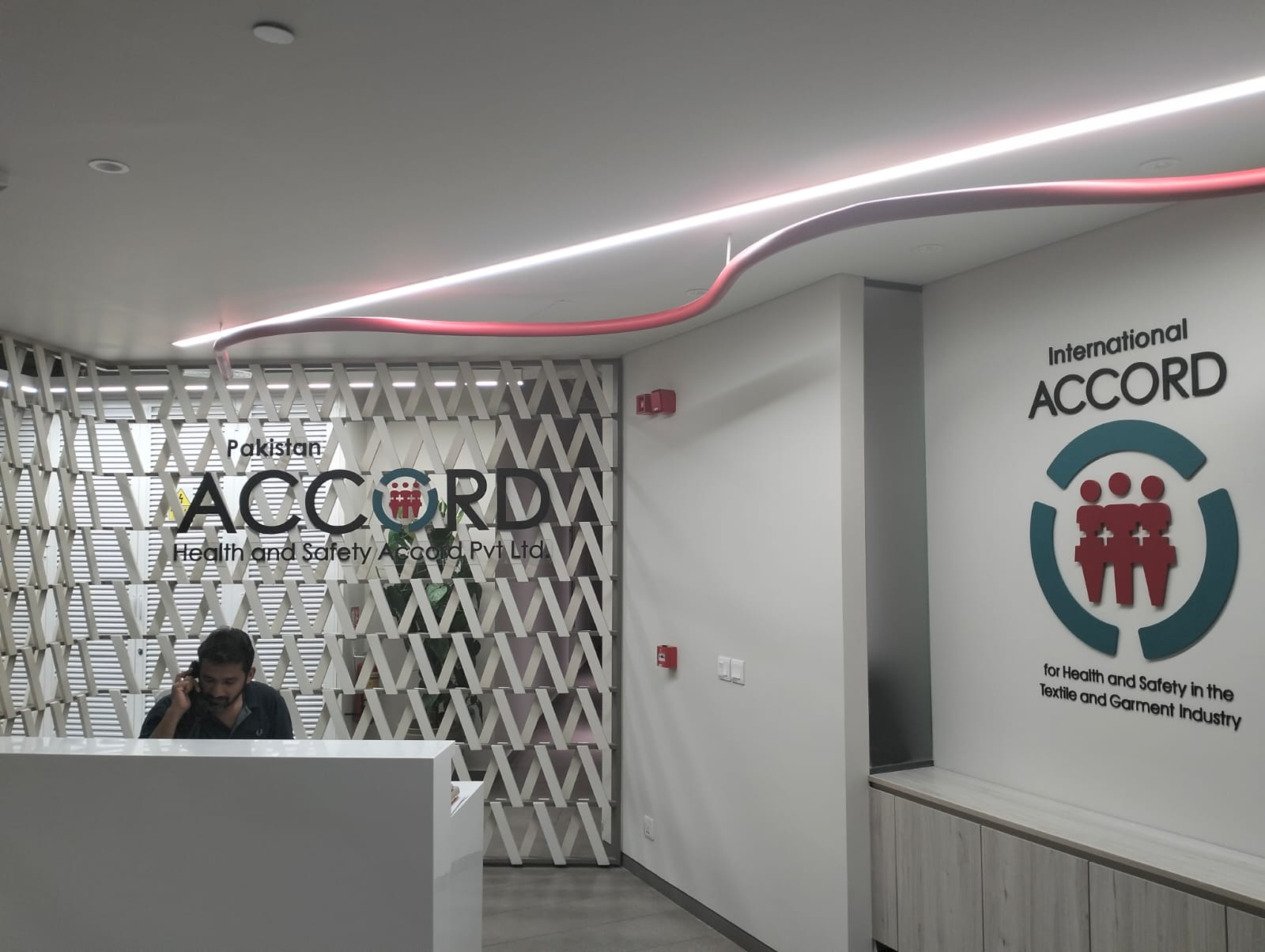
Pakistan Accord Secretariat
The Pakistan Accord is in the process of building local teams in Karachi and Lahore to effectively implement the Accord programs in coordination with covered suppliers/factories. The team has recently hired an occupational health and safety Training Specialist, two Complaints Mechanism Specialists, one Remediation Department Manager, three administrative staff, and three office assistants. Further recruitment of Engineers, Remediation Coordinators, and boiler safety experts is currently in progress. The leadership team for the Pakistan Accord Secretariat includes:

Zulfiqar Shah, Country Manager
Zulfiqar Shah is the Country Manager for the Pakistan Accord and CEO of Health and Safety Accord (Pvt.). In his role, he oversees the implementation of the Pakistan Accord in collaboration with colleagues in Pakistan and at the International Accord Secretariat located in Amsterdam. Zulfiqar has been associated with the Accord since April 2022, assisting the team with feasibility studies and stakeholder engagement leading up to the launch of the Pakistan Accord in December 2023. With a Master’s in International Relations, Zulfiqar has 30+ years of experience in management, research, advocacy, training, and stakeholder engagement, with a focus on business and human rights. Before this role, he worked as the Decent Work Country Coordinator with the Better Cotton Initiative (BCI). He is a member of the Sindh Human Rights Commission, the Occupational Health and Safety Council, and the Steering Committee of the Action Plan on Business and Human Rights in the province of Sindh, serving in an honorary capacity. Zulfiqar began his career as a journalist for English newspapers and magazines in Pakistan, and was honoured with the Lorenzi Natali Award.

George Faller, Chief Safety Officer
In November 2023, George became the Chief Safety Officer (CSO) for the Pakistan Accord to oversee the implementation of theindependent inspections and remediation program. With 35 years of experience in global engineering consultancy, George has previously managed diverse technical teams worldwide. His focus shifted to worker safety in global supply chains while leading fire engineering teams at Arup in Europe in 2013. He has since been involved in initiatives focused on improving building safety in the RMG sector across Bangladesh, India, Vietnam, and Ethiopia, including serving as Chief Technical Advisor with the ILO in Dhaka and as CSO for the RMG Sustainability Council (RSC) in Bangladesh.

Kirstine Drew, Chief Complaints Officer
Kirstine Drew is the Chief Complaints Officer at the Pakistan Accord. Kirstine joined the Accord on Fire and Building Safety in Bangladesh in 2019 and was responsible for the management of the Accord’s Safety and Health Complaints Mechanism. Kirstine is currently setting up the Pakistan Accord’s workplace program in Pakistan, which includes the Safety and Health Training Program and an independent Complaints Mechanism. Before joining the Accord, Kirstine worked at the Trade Union Advisory Committee to the OECD (TUAC) where her responsibilities included supporting the effective implementation and dissemination of TUAC’s work on the OECD Guidelines for Multinational Enterprises.
Resources
Stay in Touch
Related updates
May 28, 2025
The International Accord’s All Signatory Meeting was dedicated to insights on the progress and operations of the Accord’s country program in Bangladesh and Pakistan, alongside exploring opportunities to expand the Accord’s scope and impact.
March 10, 2025
This briefing provides updates on the number of signatory brands and covered factories, the rollout of Workplace Programs, and recent events organised by the Pakistan Accord team.
February 19, 2025
The Pakistan Accord team recently organised a series of capacity building workshops for government officials in the Sindh and Punjab provinces.
May 28, 2025
The International Accord’s All Signatory Meeting was dedicated to insights on the progress and operations of the Accord’s country program in Bangladesh and Pakistan, alongside exploring opportunities to expand the Accord’s scope and impact.
February 19, 2025
The Pakistan Accord team recently organised a series of capacity building workshops for government officials in the Sindh and Punjab provinces.
November 28, 2024
On 26 and 27 November 2024 the Pakistan Accord conducted its inaugural safety training meeting in Pakistan. The meeting was attended by all employees of the factory.
Pakistan Accord: Supplier Briefing #3


Supplier Briefing #3
These Supplier Briefings are designed for all factories/suppliers listed by Pakistan Accord signatory brands. They include updates on key developments under the Pakistan Accord, along with information on upcoming events, guidance materials, and resources for suppliers.
We encourage all suppliers/factories covered by the Pakistan Accord to read these briefings regularly and to share their recommendations, ideas, and suggestions by contacting us via pakistan.factories@internationalaccord.org.
This briefing includes updates on:
- Number of signatory brands, covered Factories
- Program Rollout: Pakistan Accord Building Standard, first safety inspections
- Implementation: Accord presence in Pakistan, Pakistan Accord Team
- New International Accord
Number of Signatory Brands and Covered Factories
At the time of writing this briefing, more than 90 global brands sourcing textiles and garments from Pakistan have signed the Pakistan Accord, thereby committing to work with their suppliers to ensure workplace safety. As stated by one of the Accord’s recent signatories to the Pakistan Accord, ASOS:
Due to the Pakistan program in place, ASOS has now started scoping Pakistan as a sourcing region as it was imperative for us to have a credible programme like Accord in place. We look forward to working together to create a safer working environment and empower workers.
The Pakistan Accord signatory brands are headquartered in 17 countries across Europe, Turkey, the USA, Australia, Hong Kong, and Japan, and include some of the world’s largest clothing brands and retailers. Collectively, these companies source over US$2.5 billion worth of goods from approximately 500 suppliers in Pakistan.
Program Rollout
Pakistan Accord Building Standard
Following extensive consultations with relevant stakeholders including the Pakistani Government, engineering experts, and academics over the past few months, the Pakistan Accord Building Standard (Standard) was finalised.
This Standard establishes minimum life-safety criteria to reduce danger to life from fire, structural, electrical, and boiler hazards as well as safety risks relating to the storage, use, and handling of hazardous substances. The application of this Standard is intended for new and existing garment and textile factories supplying Pakistan Accord company signatories. An independent Chief Safety Officer and team of engineers of the Pakistan Accord will assess Accord factory compliance with this Standard and produce reports of the safety hazards they identify.
The Standard was launched across a series of two webinars on 27 September and 4 October 2023 during which factories supplying Pakistan Accord signatory companies were invited to participate, engage with experts, and ask technical questions about the Standard.
First Safety Inspections Under the Pakistan Accord
The Pakistan Accord started a first round of initial inspections at factories supplying Pakistan Accord brands in Lahore and Karachi in October 2023. These initial inspections mark a significant milestone in the rollout of the Pakistan Accord.
The inspections were conducted as stipulated under the Pakistan Accord at four new facilities and four facilities that were part of the Accord pilot inspection program pilot safety assessments conducted between November and December 2022.
The Accord worked closely with the participating factories to support their preparation for the inspections. The support provided included meetings with Accord technical experts, opportunities to clarify any technical questions, and a detailed briefing document outlining the agenda for the day of inspection and actions where the factory’s support is needed.
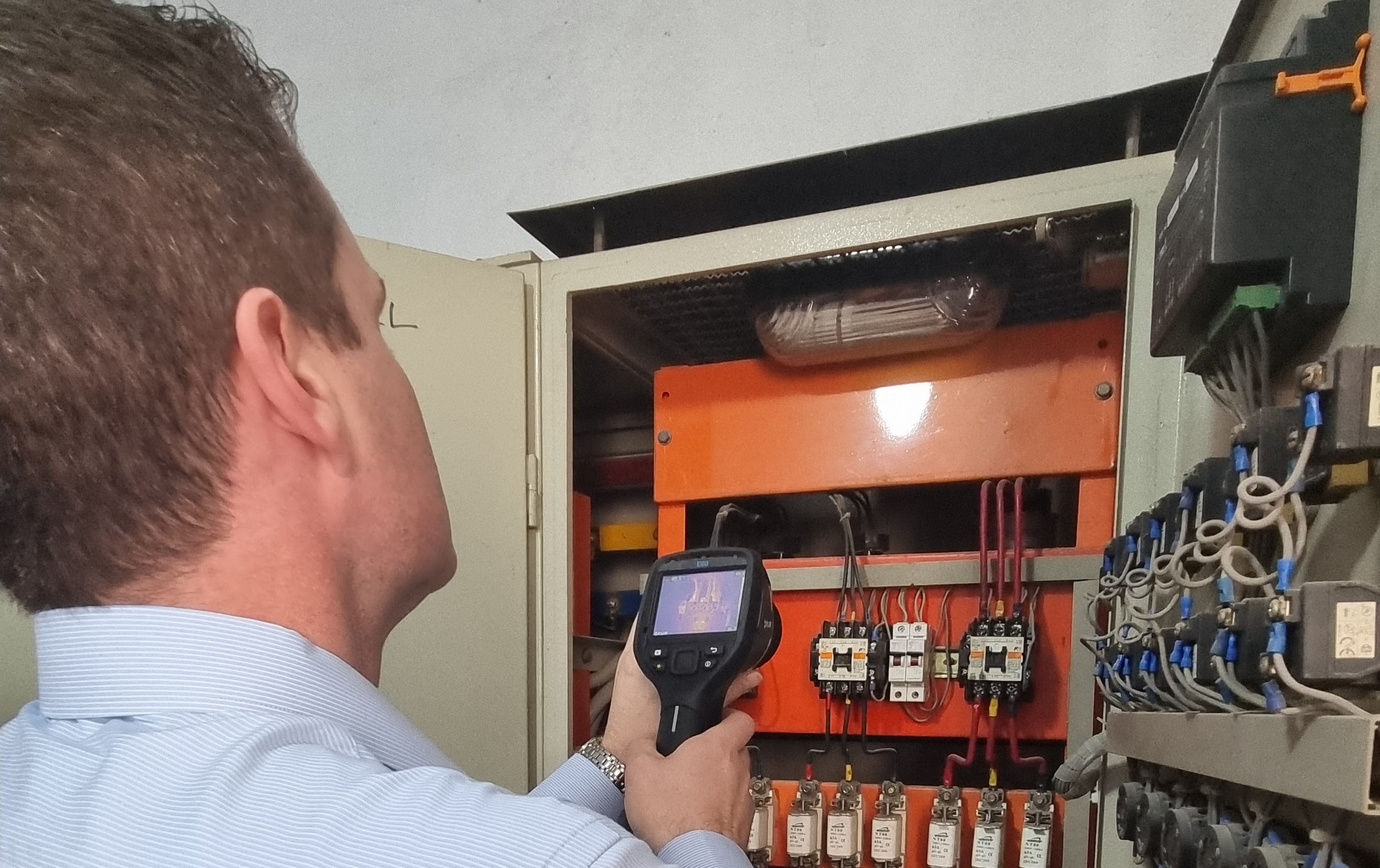
Throughout the inspection process, these factories demonstrated commitment to ensuring workplace safety, receptiveness to feedback, preparedness, and cooperation with our engineering teams. We look forward to our ongoing collaboration with these factories and their Accord brand customers to advance workplace health and safety.
The Pakistan Accord is continuing its rollout of the inspections program in the Province of Sindh and preparing for the roll-out of inspections in the Province of Punjab at the start of 2024.
Read more about the first batch of factories inspected under the Pakistan Accord.
Implementation
Accord Presence in Pakistan
As of September 2023, the International Accord BV, established to implement the Pakistan Accord for Health and Safety in the Textile and Garment Industry (Pakistan Accord) incorporated a private limited subsidiary company in Pakistan in the name of Health and Safety Accord Pvt. Ltd. This private company is undertaking the activities on behalf of Accord signatory companies and following the provisions of the Pakistan Accord, which include fire, electrical, structural, and boiler safety inspections, developing and monitoring the implementation of Corrective Actions Plans (CAPs), the implementation of workplace safety training and complaints program, and a local capacity building program.
Pakistan Accord Team
The Pakistan Accord is in the process of building local teams in Karachi and Lahore that will ensure the effective implementation of the Accord’s programs and smooth coordination with suppliers.
Most notably, the Pakistan Accord has recently recruited for the following positions :
- Country Manager
- Chief Safety Officer
- Chief Complaints Officer
- Fire, Electrical, and Structural Safety Engineers
- Remediation Department Manager
The Pakistan Accord operations are also supported by international engineering consultants and the International Accord Secretariat.
New International Accord
Negotiations between representatives of global brands and trade union signatories to the International Accord on Health and Safety in the Textile and Garment Industry (International Accord) have resulted in a new agreement that reaffirms their commitment to enhancing health and safety throughout the supply chains of brand signatories in Bangladesh, Pakistan, and other countries in the future.
Brands and trade unions have renewed their commitments for an extended three-year term, with an automatic renewal of another three years, making it the longest Accord commitment to date. This new version of the International Accord took effect on November 1, 2023. Additionally, the brands and trade unions finalised a new agreement to further their efforts in enhancing health and safety within the Bangladeshi garment industry through the RMG Sustainability Council (RSC).
How does the Pakistan Accord relate to the new International Accord? The Pakistan Accord, which was signed in January 2023 for three years, will continue as a Country-Specific Safety Program (CSSP) of the International Accord.
Read the International Accord, Bangladesh Safety Program, And Pakistan Accord Agreements here.
Read the statement about the renewal of the International Accord here.
Resources
Stay in Touch
Related updates
May 28, 2025
The International Accord’s All Signatory Meeting was dedicated to insights on the progress and operations of the Accord’s country program in Bangladesh and Pakistan, alongside exploring opportunities to expand the Accord’s scope and impact.
March 10, 2025
This briefing provides updates on the number of signatory brands and covered factories, the rollout of Workplace Programs, and recent events organised by the Pakistan Accord team.
February 19, 2025
The Pakistan Accord team recently organised a series of capacity building workshops for government officials in the Sindh and Punjab provinces.
May 28, 2025
The International Accord’s All Signatory Meeting was dedicated to insights on the progress and operations of the Accord’s country program in Bangladesh and Pakistan, alongside exploring opportunities to expand the Accord’s scope and impact.
February 19, 2025
The Pakistan Accord team recently organised a series of capacity building workshops for government officials in the Sindh and Punjab provinces.
November 28, 2024
On 26 and 27 November 2024 the Pakistan Accord conducted its inaugural safety training meeting in Pakistan. The meeting was attended by all employees of the factory.
Pakistan Accord: Supplier Briefing #2


Supplier Briefing #2
These Supplier Briefings are designed for all factories/suppliers listed by Pakistan Accord signatory brands. They include updates on key developments under the Pakistan Accord, along with information on upcoming events, guidance materials, and resources for suppliers.
We encourage all suppliers/factories covered by the Pakistan Accord to read these briefings regularly and to share their recommendations, ideas, and suggestions by contacting us via pakistan.factories@internationalaccord.org.
This briefing includes updates on:
- Number of Signatory Brands, Covered Factories
- Findings from the Accord Pilot in Pakistan
- Upcoming resources and events
Number of Signatory Brands and Covered Factories
At the time of writing this briefing, over 65 brands sourcing clothing and textiles from Pakistan have signed the Pakistan Accord, thereby committing to work with their suppliers to ensure workplace safety.
The Pakistan Accord company signatories are headquartered in 17 countries, spanning Europe, Turkey, the USA, Australia, Hong Kong, and Japan, and include some of the world’s largest clothing brands and retailers. Collectively, these companies source over US$2.5 billion worth of goods from more than 400 suppliers in Pakistan.
Signatory companies have recently disclosed their factory lists to the Accord, including data that will inform the selection of priority factories for initial inspections according to safety risks and leverage criteria.
Findings from Accord Pilot
The International Accord pilot safety assessments were initiated in September 2022 with the goal of understanding the key considerations for establishing an effective safety inspection and remediation program with garment and textile suppliers in Pakistan. The pilot included safety assessments at seven garment and textile factories in Karachi and Lahore, along with follow-up discussions on remediation feasibility with the participating factories.
A report summarising findings from these pilot safety assessments is now available here. The key areas of improvement for ensuring worker health and safety highlighted within the pilot report include:
- Structural design checks and preparation of accurate building drawings.
- Fire-separated construction and protected exit routes to allow safe egress in case of fire.
- Proper installation and testing of fire alarm and fire suppression systems to ensure full functioning in case of emergency.
- Electrical system design and installation conforming with code requirements, as well as maintenance and cleaning regimes to prevent electrical hazards.
- Maintenance and repair of boilers and associated systems to avoid the risk of serious accidents.
Pakistan Accord Building Standard
In recent months, the International Accord has worked with the former Chief Safety Inspector of the Accord on Fire and Building Safety in Bangladesh, Brad Loewen, to review Pakistani building codes and develop a draft factory safety standard for the Pakistan Accord, covering electrical, fire, structural, and boiler safety.
In May 2023, the International Accord team met with engineering and building code experts in Pakistan for consultation on key details in the Standard. These experts will review the latest draft of the Pakistan Accord Building Standard (Standard) in the coming weeks.
The Accord intends to finalise and publish the Standard by the end of August 2023. Factories covered under the Pakistan Accord will subsequently be inspected against this finalised Standard.
Upcoming: New Information Pack for Suppliers
Following requests from industry representatives in recent meetings, the Accord has developed an Information Pack for Suppliers to share all relevant information about the Pakistan Accord in one place. This information pack will be circulated in the coming weeks and includes:
- A summary detailing the objectives, scope, and programs under the Pakistan Accord.
- Inforgraphic on a factory’s journey through Accord programs.
- Benefits of participating in Accord programs.
- A summary of the Implementation Plan.
- Supplier FAQs with answers to the commonly asked questions from suppliers.
Upcoming Events
Launch of the Pakistan Accord Building Standard
Resources
Stay in Touch
Related updates
May 28, 2025
The International Accord’s All Signatory Meeting was dedicated to insights on the progress and operations of the Accord’s country program in Bangladesh and Pakistan, alongside exploring opportunities to expand the Accord’s scope and impact.
March 10, 2025
This briefing provides updates on the number of signatory brands and covered factories, the rollout of Workplace Programs, and recent events organised by the Pakistan Accord team.
February 19, 2025
The Pakistan Accord team recently organised a series of capacity building workshops for government officials in the Sindh and Punjab provinces.
May 28, 2025
The International Accord’s All Signatory Meeting was dedicated to insights on the progress and operations of the Accord’s country program in Bangladesh and Pakistan, alongside exploring opportunities to expand the Accord’s scope and impact.
February 19, 2025
The Pakistan Accord team recently organised a series of capacity building workshops for government officials in the Sindh and Punjab provinces.
November 28, 2024
On 26 and 27 November 2024 the Pakistan Accord conducted its inaugural safety training meeting in Pakistan. The meeting was attended by all employees of the factory.
Pakistan Accord: Supplier Briefing #1


Supplier Briefing #1
These Supplier Briefings are designed for all factories/suppliers listed by Pakistan Accord signatory brands. They include updates on key developments under the Pakistan Accord, along with information on upcoming events, guidance materials, and resources for suppliers.
We encourage all suppliers/factories covered by the Pakistan Accord to read these briefings regularly and to share their recommendations, ideas, and suggestions by contacting us via pakistan.factories@internationalaccord.org.
This briefing includes:
- The rationale for a Pakistan Accord
- Key goals and benefits of the Pakistan Accord
- What factories can expect once the programs start
In a Nutshell
- The Pakistan Accord for Health and Safety in the Textile and Garment Industry (Pakistan Accord) is an agreement between brands, retailers, and global trade unions to ensure health and safety at textile and garment factories supplying Accord signatory brands and retailers.
- The Pakistan Accord agreement was announced on 14th December 2022 with the intention to begin implementation in early 2023.
- The Pakistan Accord covers cut-make-trim (and vertically integrated) suppliers of ready-made-garments, home textile, fabric & knit accessories and fabric mills in company signatory supply chains. The timing and process of the implementation of the Accord in relation to not vertically integrated fabric mills will be determined by the Accord Steering Committee at a later stage.
- Pakistan Accord safety programs include: Independent fire, electrical, structural and boiler safety inspections and remediation, safety committee training, independent complaints mechanism and local capacity-building.
- For the first years, the costs of implementing Pakistan Accord programs are funded by the brands and retailers that sign the Accord. Accord signatories commit to negotiating commercial terms with their individual suppliers to ensure that remediation is financially feasible.
The Rationale for an Accord Program in Pakistan
Whilst much has been done to advance working conditions in the garment and textile industry globally, fires and other preventable safety incidents are still prevalent in the industry.
Since September 2021, the International Accord signatories and staff have been exploring the feasibility of establishing factory safety programs in key garment and textile producing countries, including Pakistan, as a significant source of garments and textiles for Accord signatories. The Accord Secretariat assessed the feasibility of expansion through signatory surveys, desk research, interviews, and local stakeholder consultations. Pakistan emerged as a priority country, in part because of its increasing importance as a garment and textile sourcing country for the Accord brands and the opportunity to renew EU trade benefits.
National Governance Body
A national governance body will be established which will include national constituents, including industry, brands, trade unions, and others upon agreement. The mandate and composition will be determined through a consultative process, which the Accord Secretariat and brand and union representatives will initiate immediately starting in January 2023.
Key Goals of the Pakistan Accord
The safety programs which will be established under the Pakistan Accord aim to achieve the following outcomes at factories supplying to the Pakistan Accord signatory brands:
- Compliance with fire, electrical, structural, and boiler safety standards.
- Functional safety committees and informed workers who address and monitor health and safety at factories.
- A trusted avenue for workers to raise health and safety concerns through an effective complaints mechanism.
- Collaboration with government institutions, ILO – Better Work Pakistan, and other similar initiatives to build capacity and enhance a culture of health and safety in the country.
Benefits For Manufacturers To Participate In the Accord
- Achieve health and safety standards to protect all workers from preventable health and safety incidents.
- Access technical support and advice to implement corrective actions identified by qualified engineers during fire, electrical, structural and boiler safety inspections in accordance with global safety standards.
- Comprehensive training for labour management health and safety committees, promoting constructive labour relations and joint problem solving between factory management and workers.
- Effective resolution of worker grievances through the Accord’s health and safety complaints mechanism, which conforms to United Nations’ standards for effective grievance mechanisms.
- Strengthen and potential increase commercial relationships with more than 180 global brands and retailers signed up to the Accord by giving assurance of health and safety standards through independent Accord monitoring.
- Reduce audit fatigue through collective monitoring of workplace safety for more than 180 global brands and retailers.
- Gain public recognition for maintaining health and safety standards because remediated factories are listed on the Accord website.
What Factories Can Expect When the Accord Programs Start
Identifying factories to participate in the Pakistan Accord
- In early 2023, the Accord will publish a list of all brands and retailers that sign the Pakistan Accord on internationalaccord.org.
- Signatory brands will prepare a list of the garment and textile facilities supplying them in Pakistan and may seek additional data from each factory about each supplier’s facilities to assist Accord prioritisation of program rollout.
- Around March 2023, the Accord will publish the list of factories producing for all Pakistan Accord signatory brands, without mentioning which company signatories are sourcing at each factory.
Phased rollout of Accord programs
- The Accord will identify the first batch of factories to begin implementing Accord programs.
- The Accord will work with the selected factories to prepare for and schedule initial inspections.
- Fire, structural, electrical, and boiler inspections will be conducted and reports will be shared with each factory and their signatory brand customers.
- Each factory will be invited to meet the Accord team to discuss the inspection findings and remediation solutions, then requested to develop a suitable Corrective Action Plan (CAP).
- The inspection reports and CAP will be published on the Accord website.
- The Accord will conduct follow-up inspections to monitor remediation progress.
Public recognition for implementing workplace safety programs
- When a factory has fully remediated findings from the initial inspections, the factory will receive a letter of recognition and the Accord will make a public statement recognising that factory’s remediation.
- When a factory has completed the Safety Committee training program, this will be recorded on the Accord’s public factory list.
The Accord Safety Standard
After consultations with government authorities and engineering experts in Pakistan, the Accord will publish a Pakistan Accord Standard in early 2023 which references the relevant Pakistan Building Codes. This Standard will be the basis for the Pakistan Accord inspections and remediation program. In case factories inspected by the Accord want to discuss a particular interpretation of the Standard regarding their factory safety measures, there will be an opportunity to raise this with an Accord Lead Engineer and ultimately the Chief Safety Officer.
Resources
Stay in Touch
Related updates
May 28, 2025
The International Accord’s All Signatory Meeting was dedicated to insights on the progress and operations of the Accord’s country program in Bangladesh and Pakistan, alongside exploring opportunities to expand the Accord’s scope and impact.
March 10, 2025
This briefing provides updates on the number of signatory brands and covered factories, the rollout of Workplace Programs, and recent events organised by the Pakistan Accord team.
February 19, 2025
The Pakistan Accord team recently organised a series of capacity building workshops for government officials in the Sindh and Punjab provinces.
May 28, 2025
The International Accord’s All Signatory Meeting was dedicated to insights on the progress and operations of the Accord’s country program in Bangladesh and Pakistan, alongside exploring opportunities to expand the Accord’s scope and impact.
February 19, 2025
The Pakistan Accord team recently organised a series of capacity building workshops for government officials in the Sindh and Punjab provinces.
November 28, 2024
On 26 and 27 November 2024 the Pakistan Accord conducted its inaugural safety training meeting in Pakistan. The meeting was attended by all employees of the factory.


